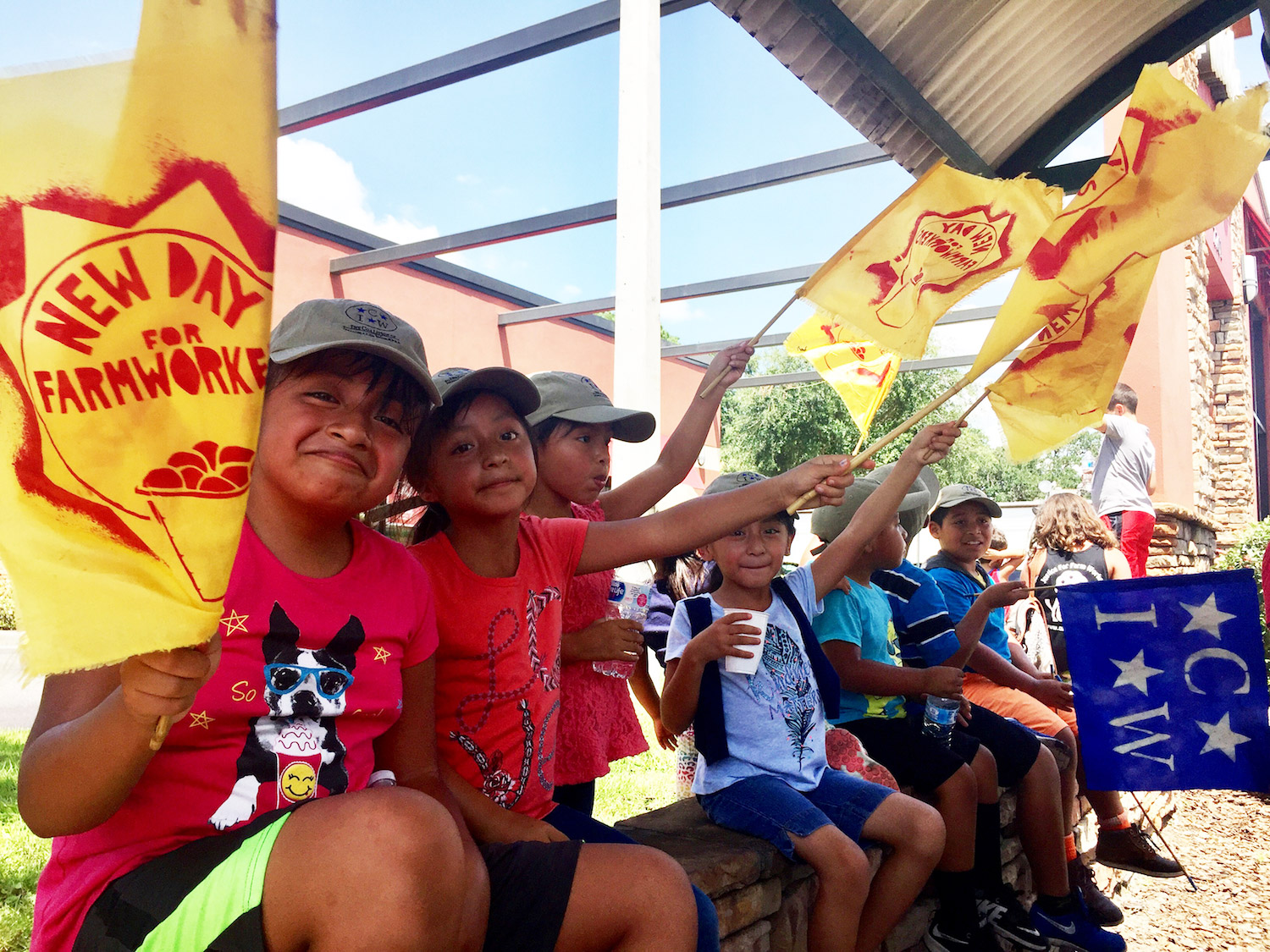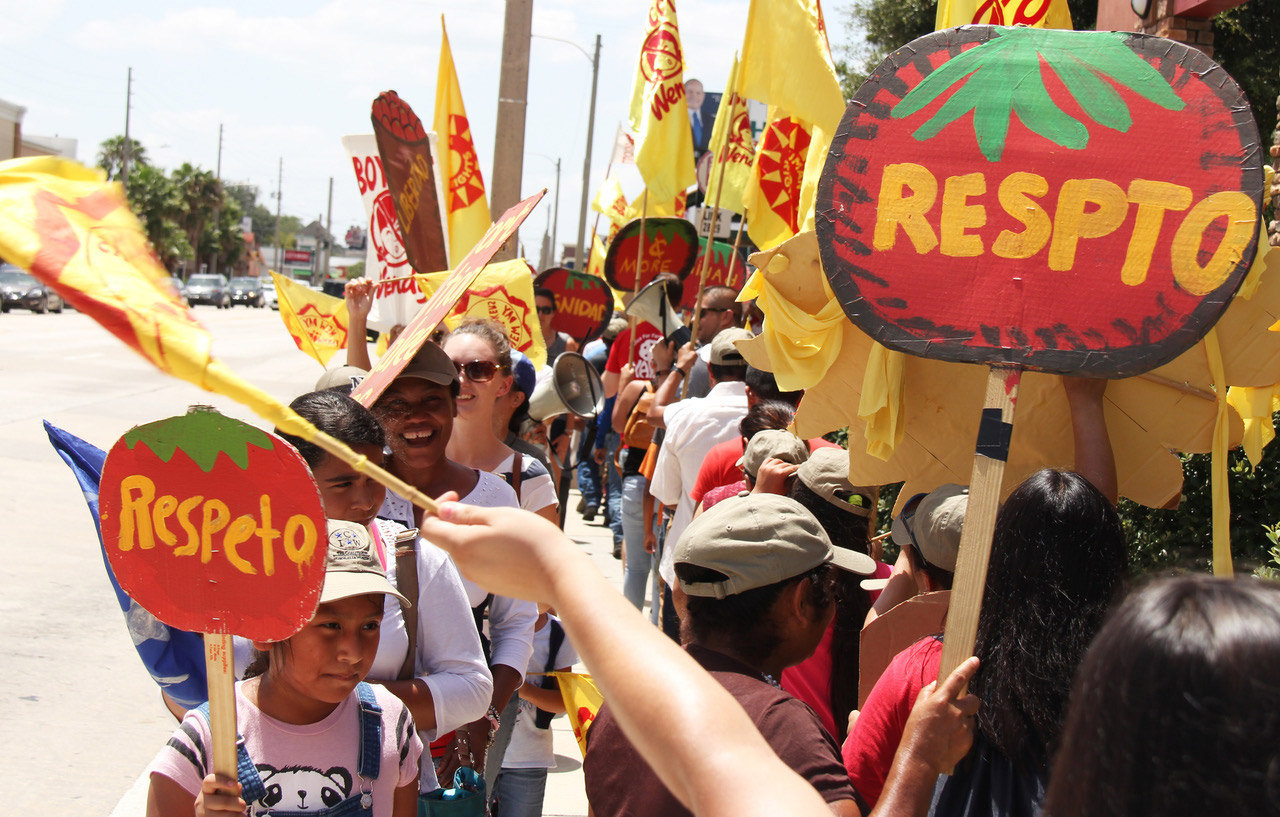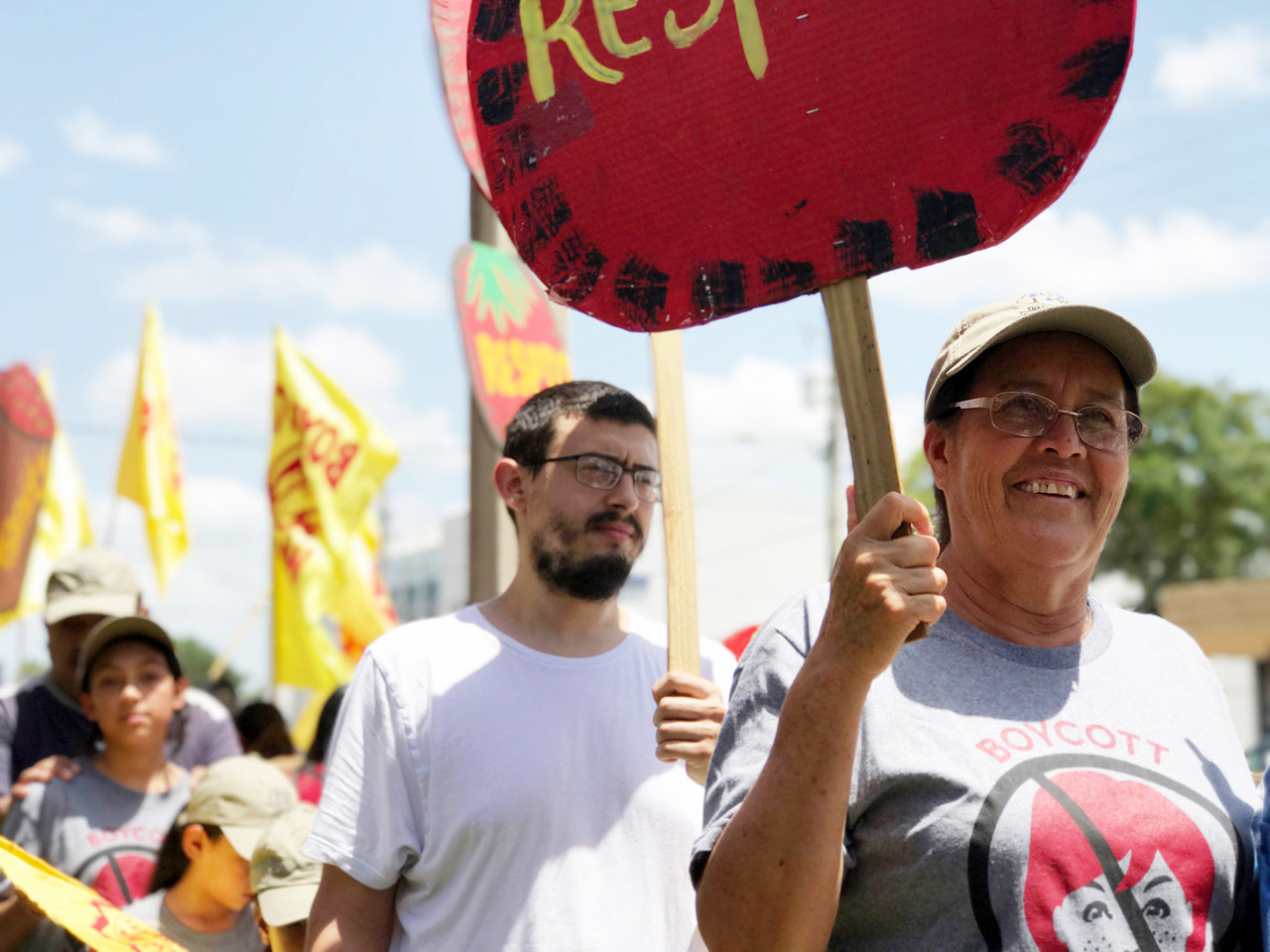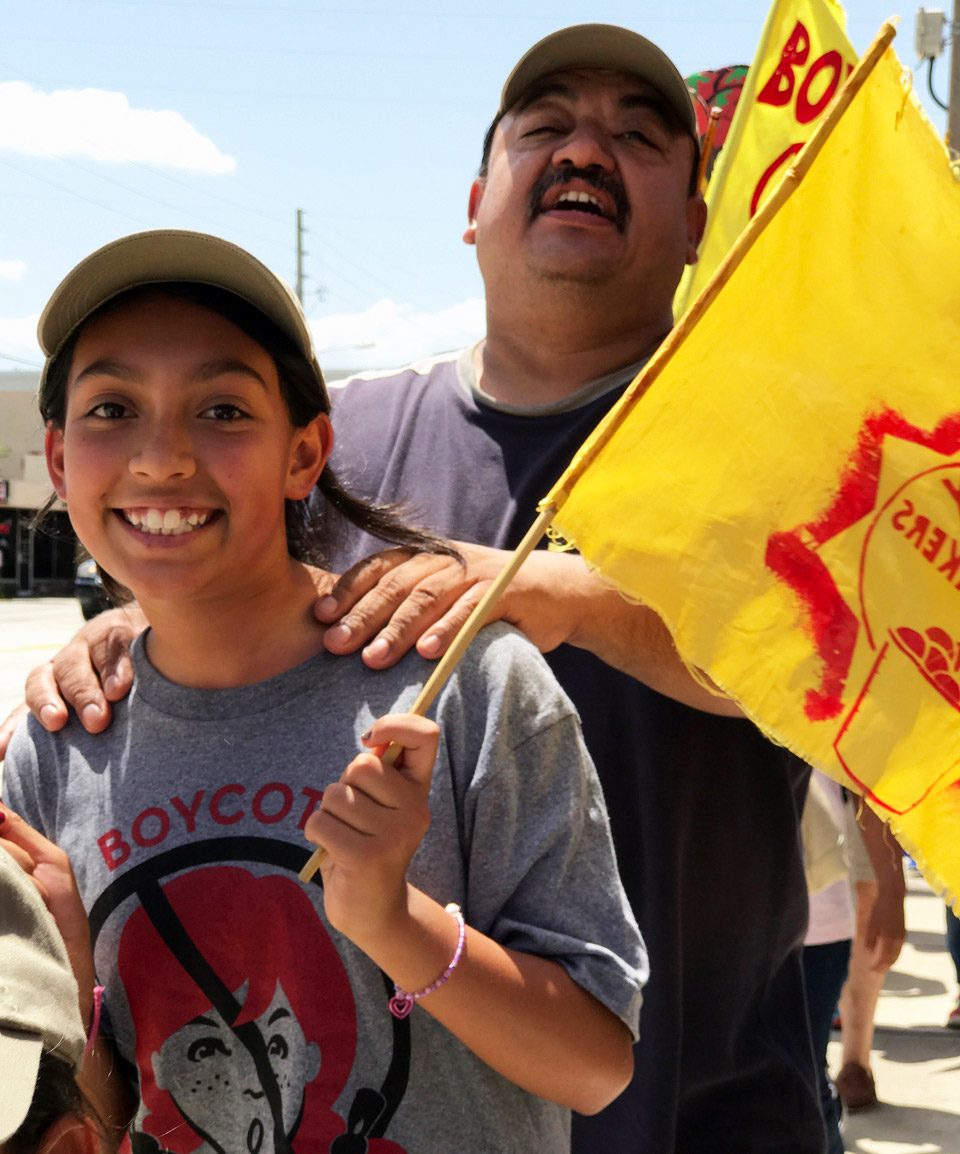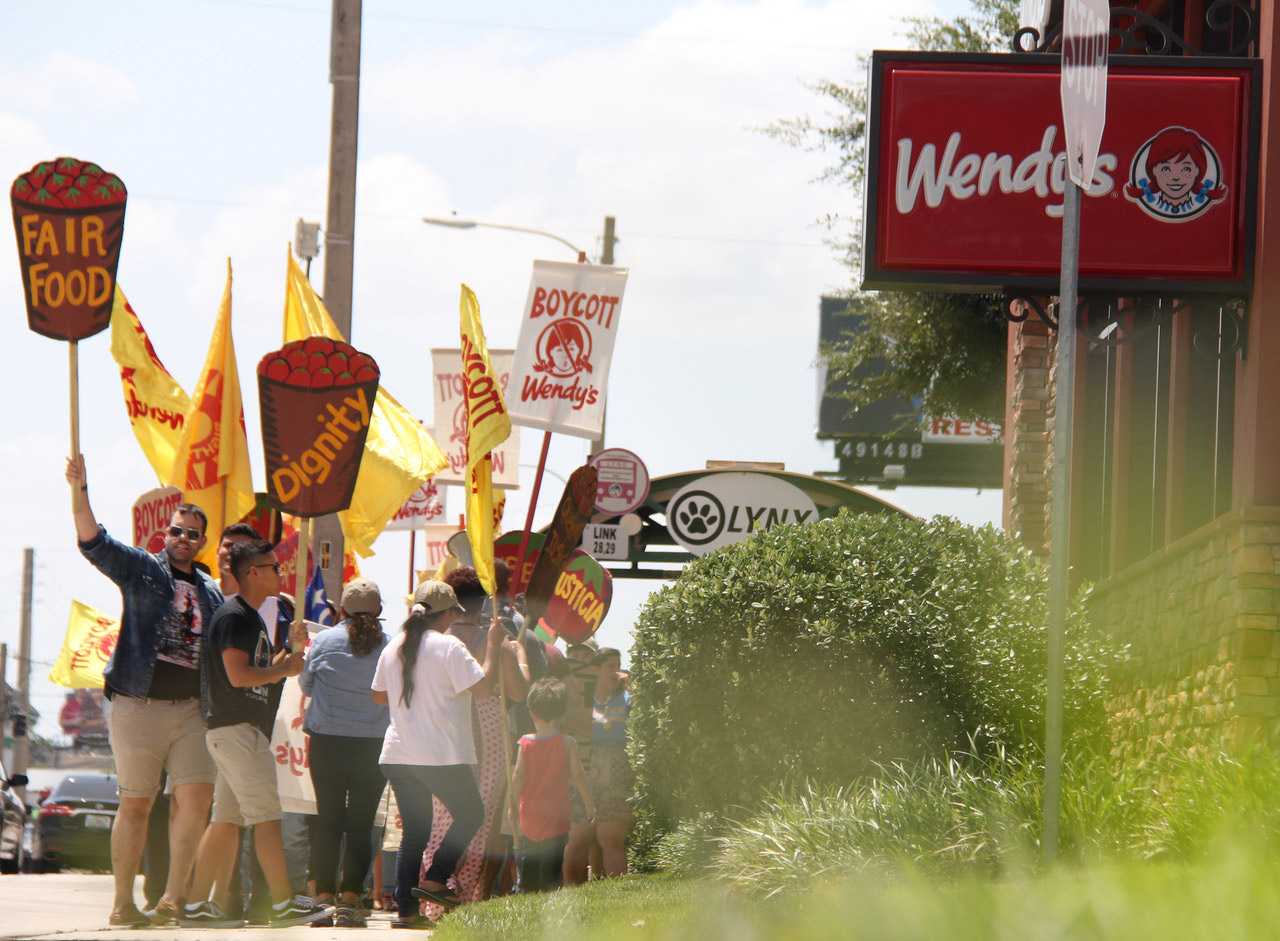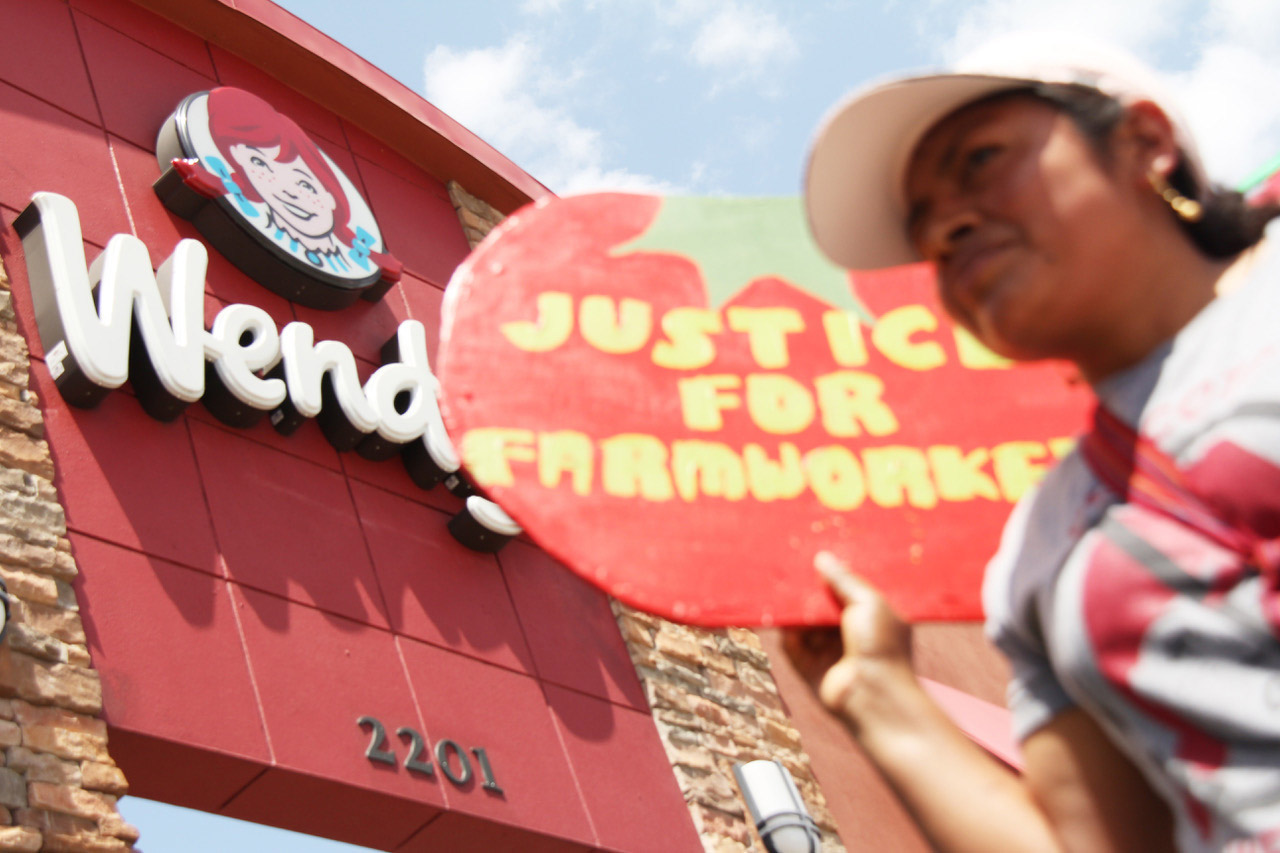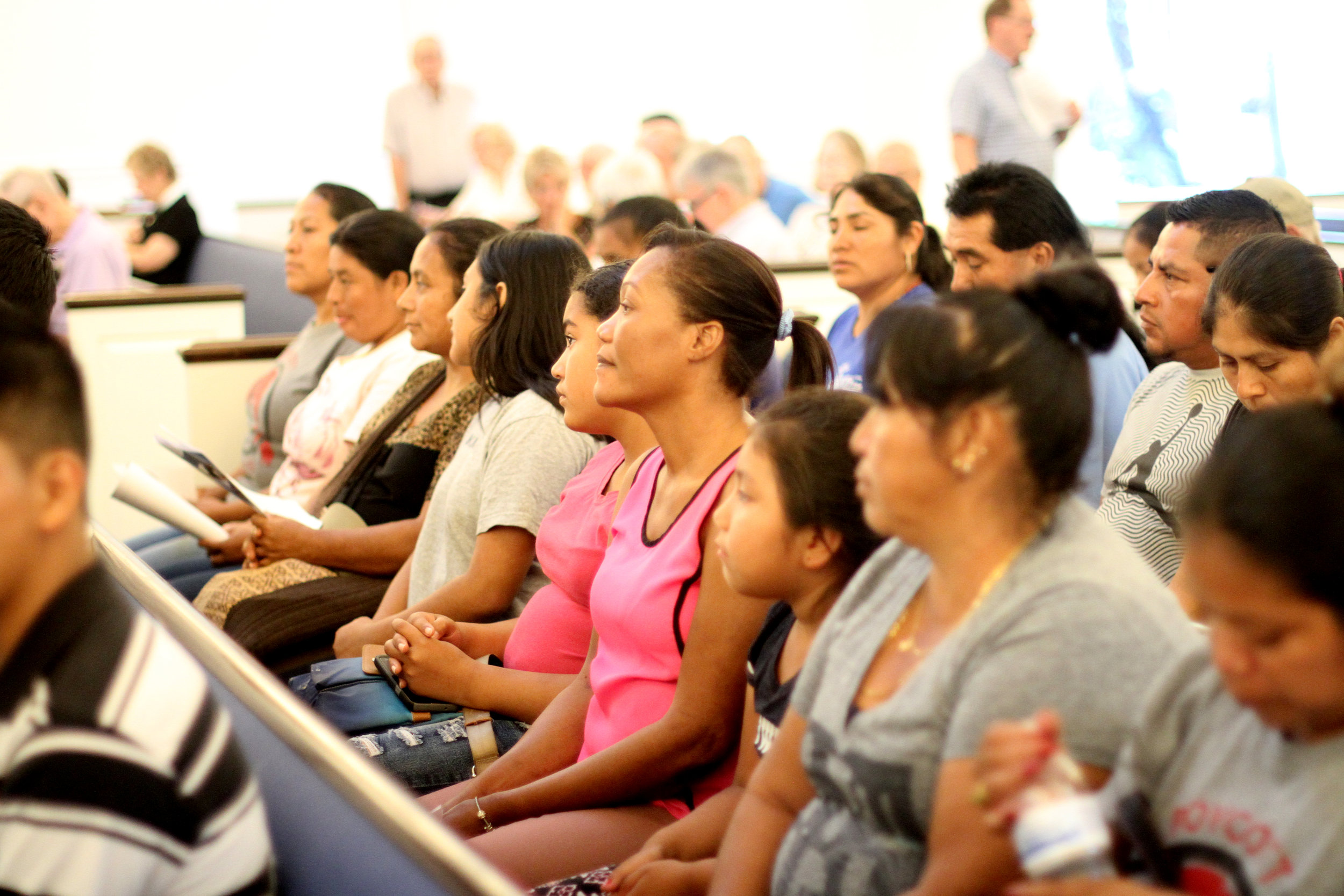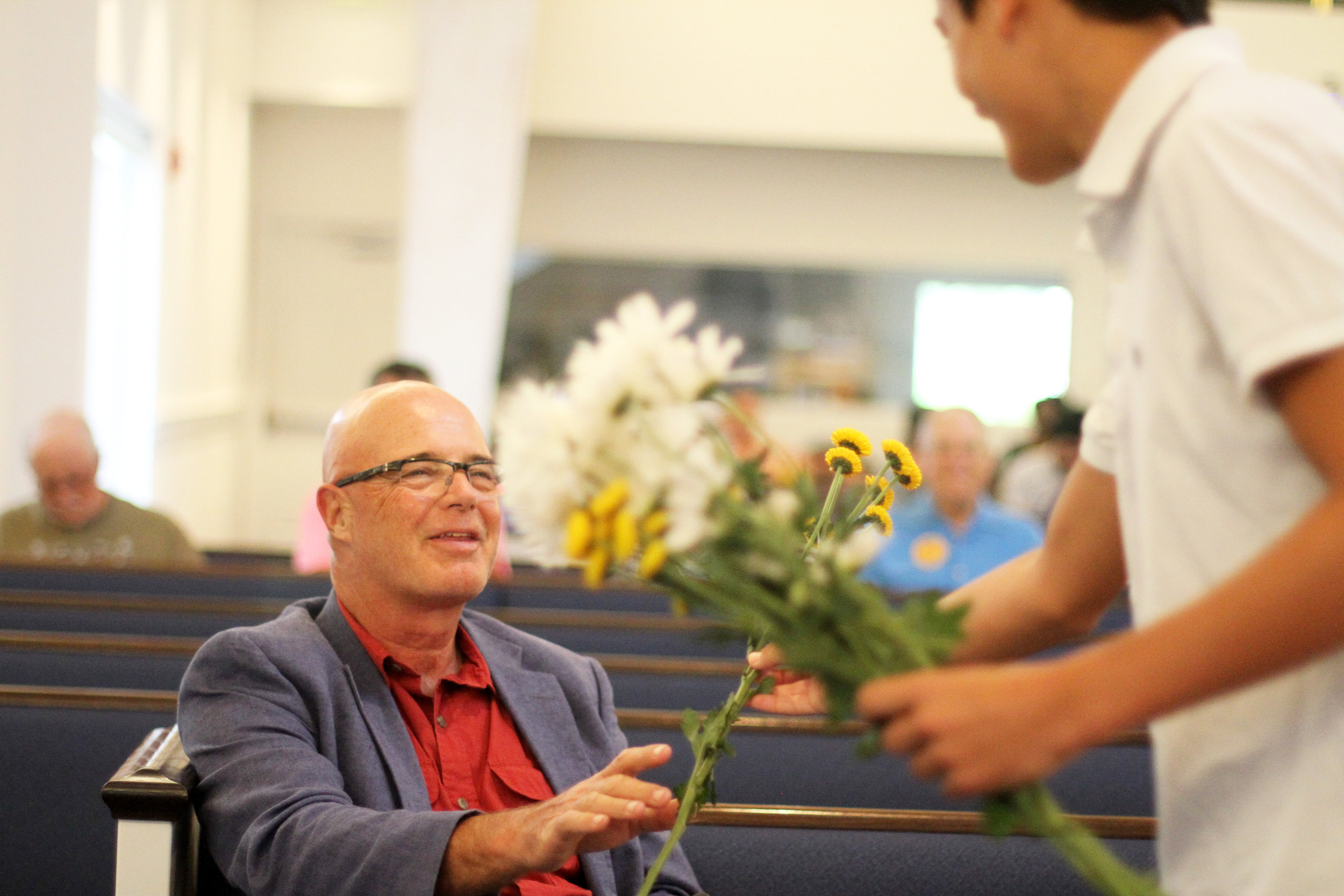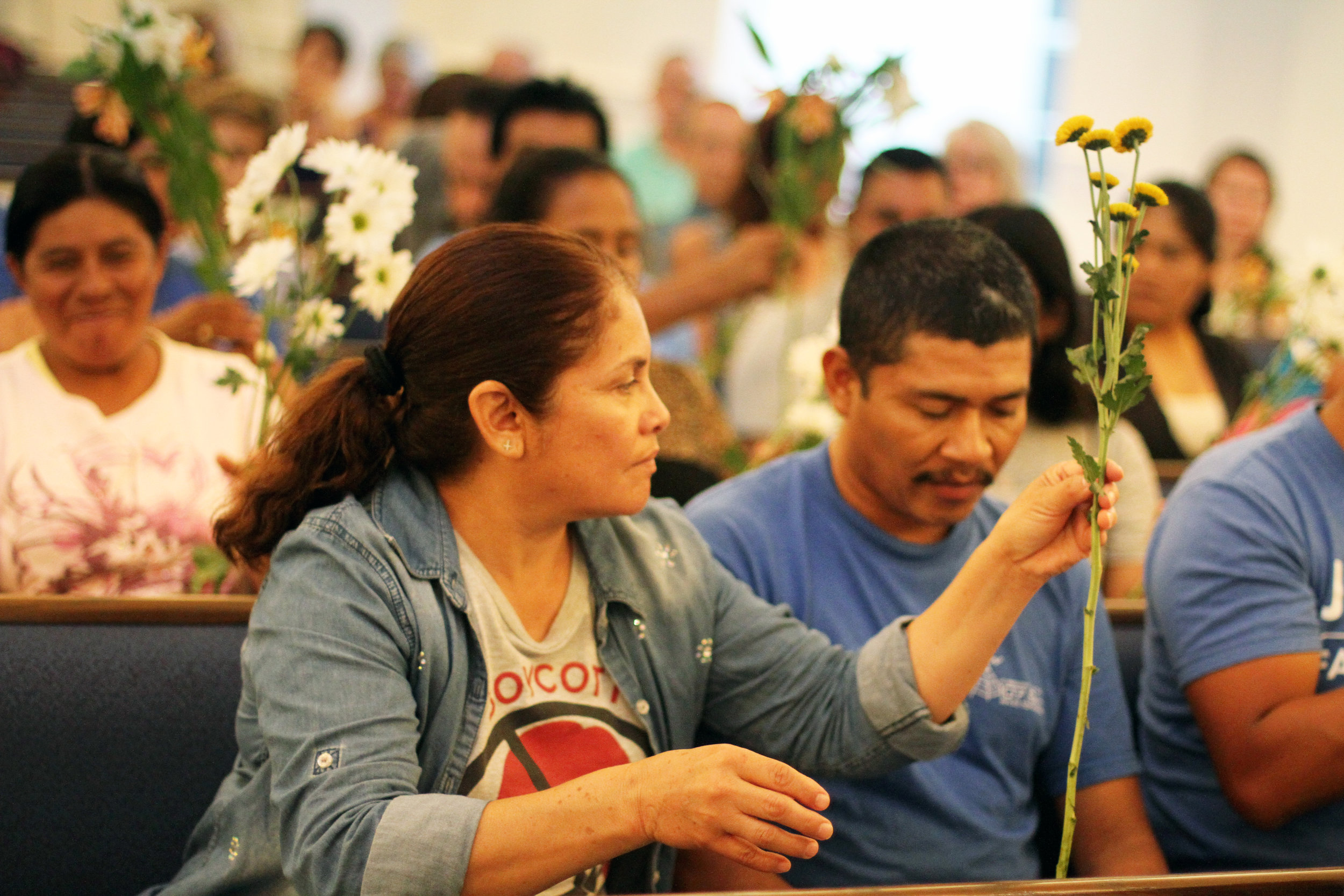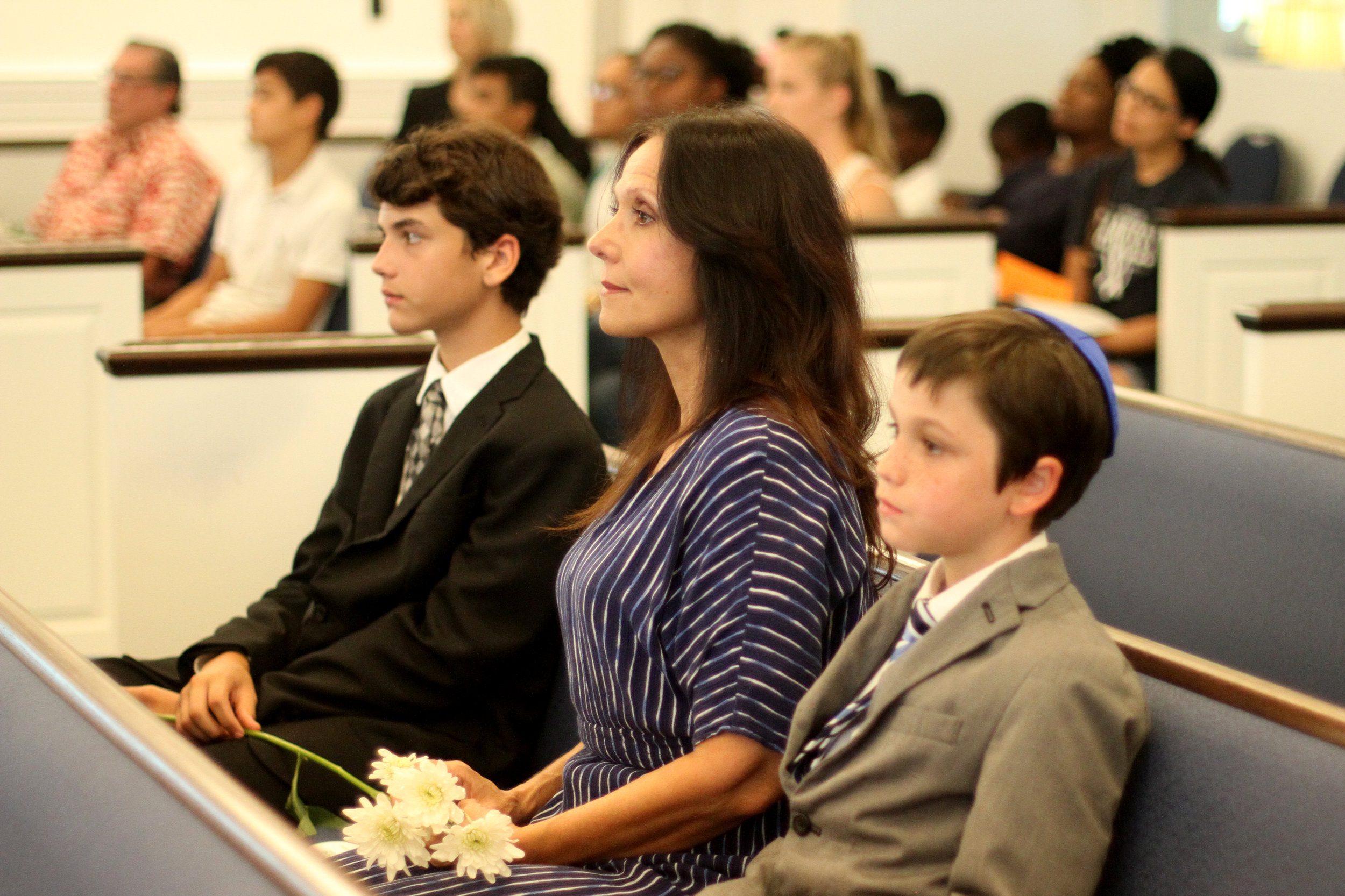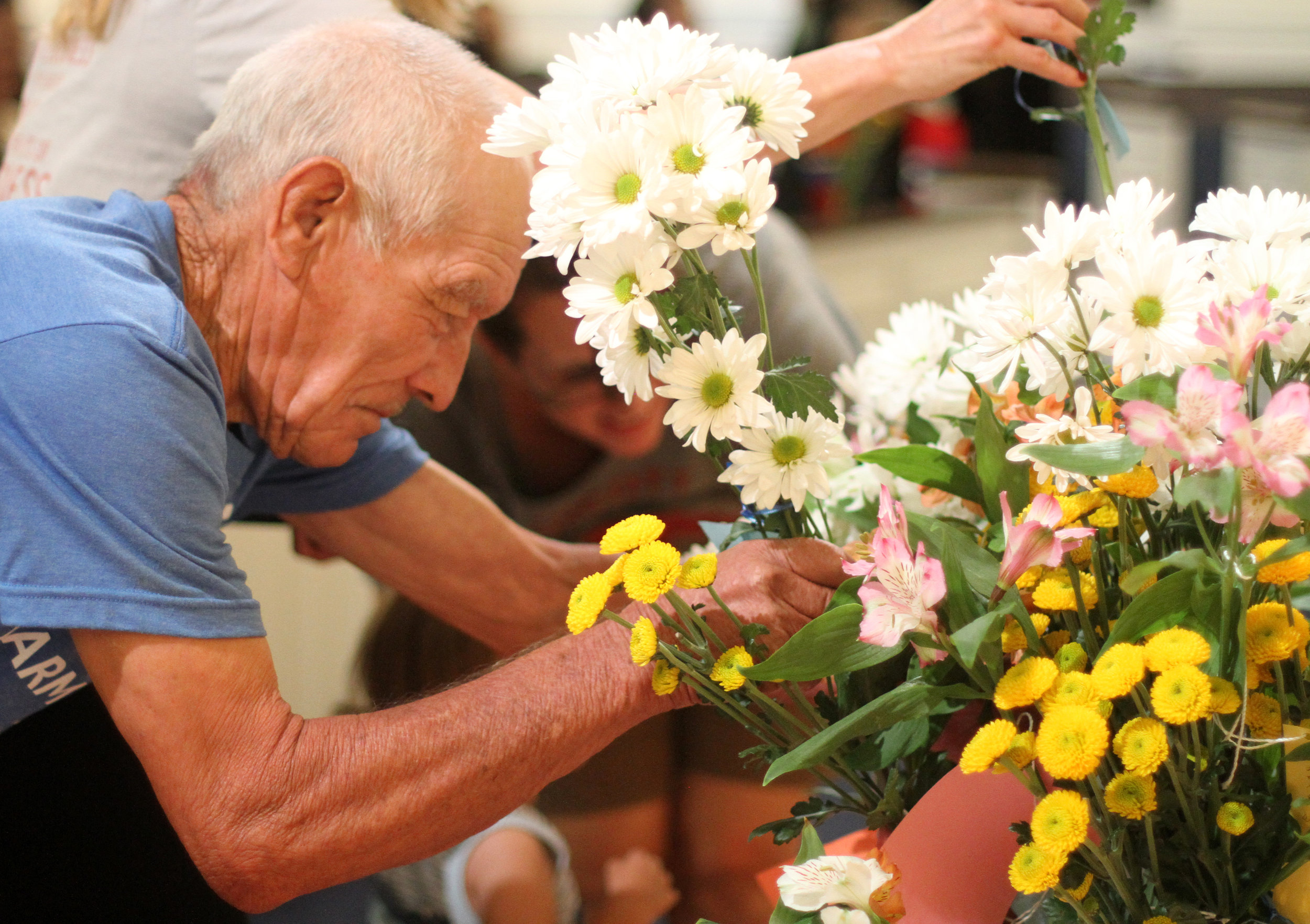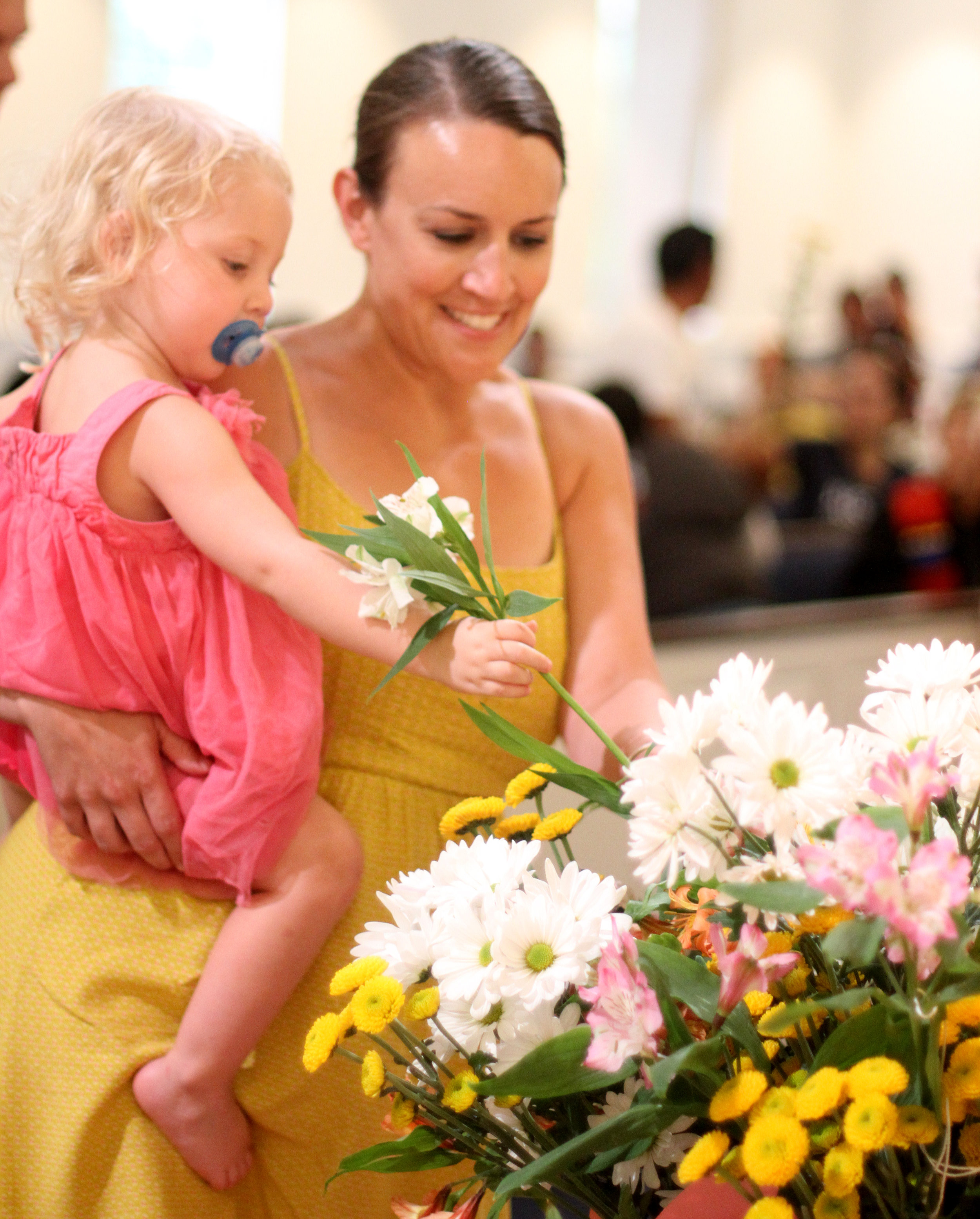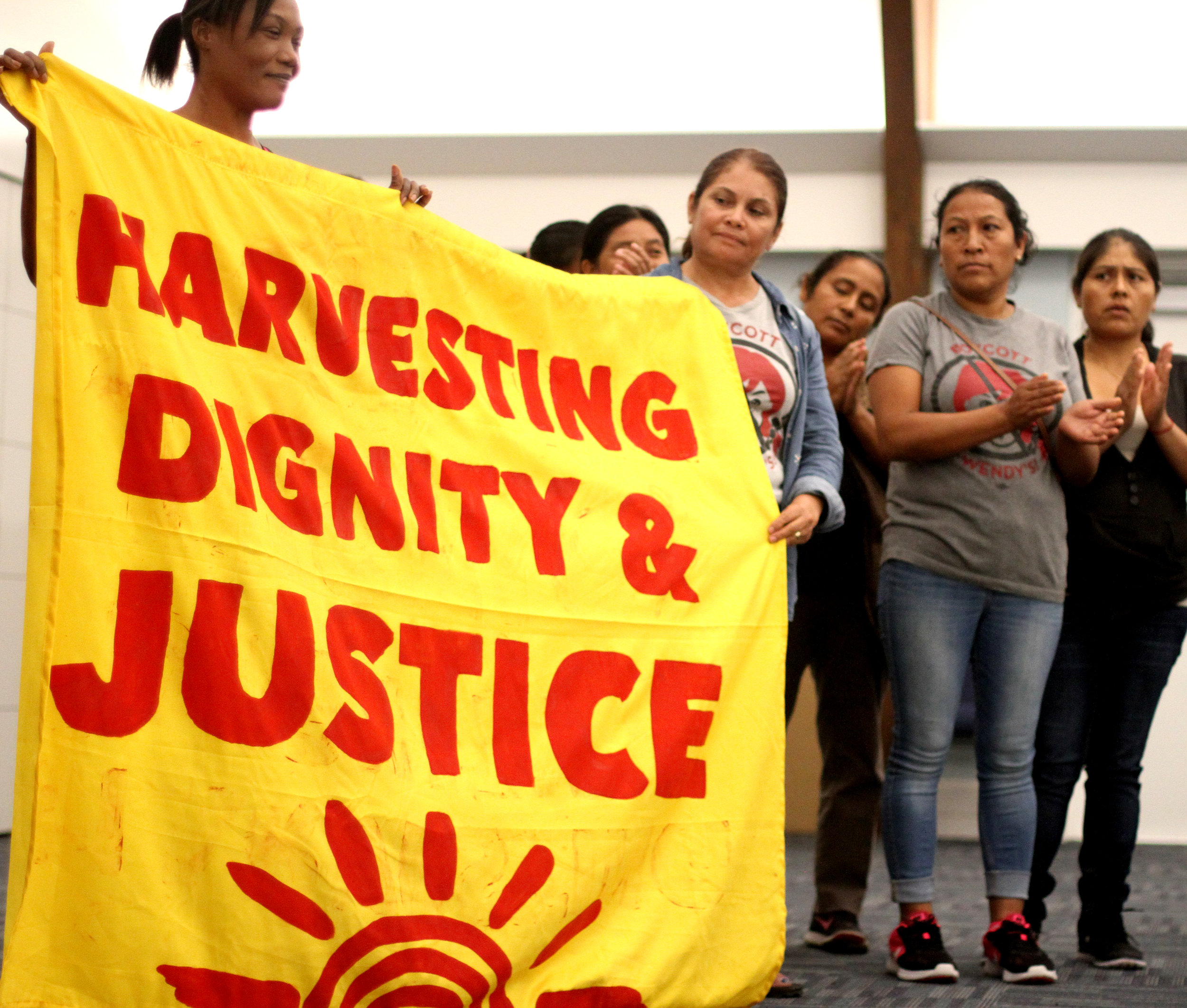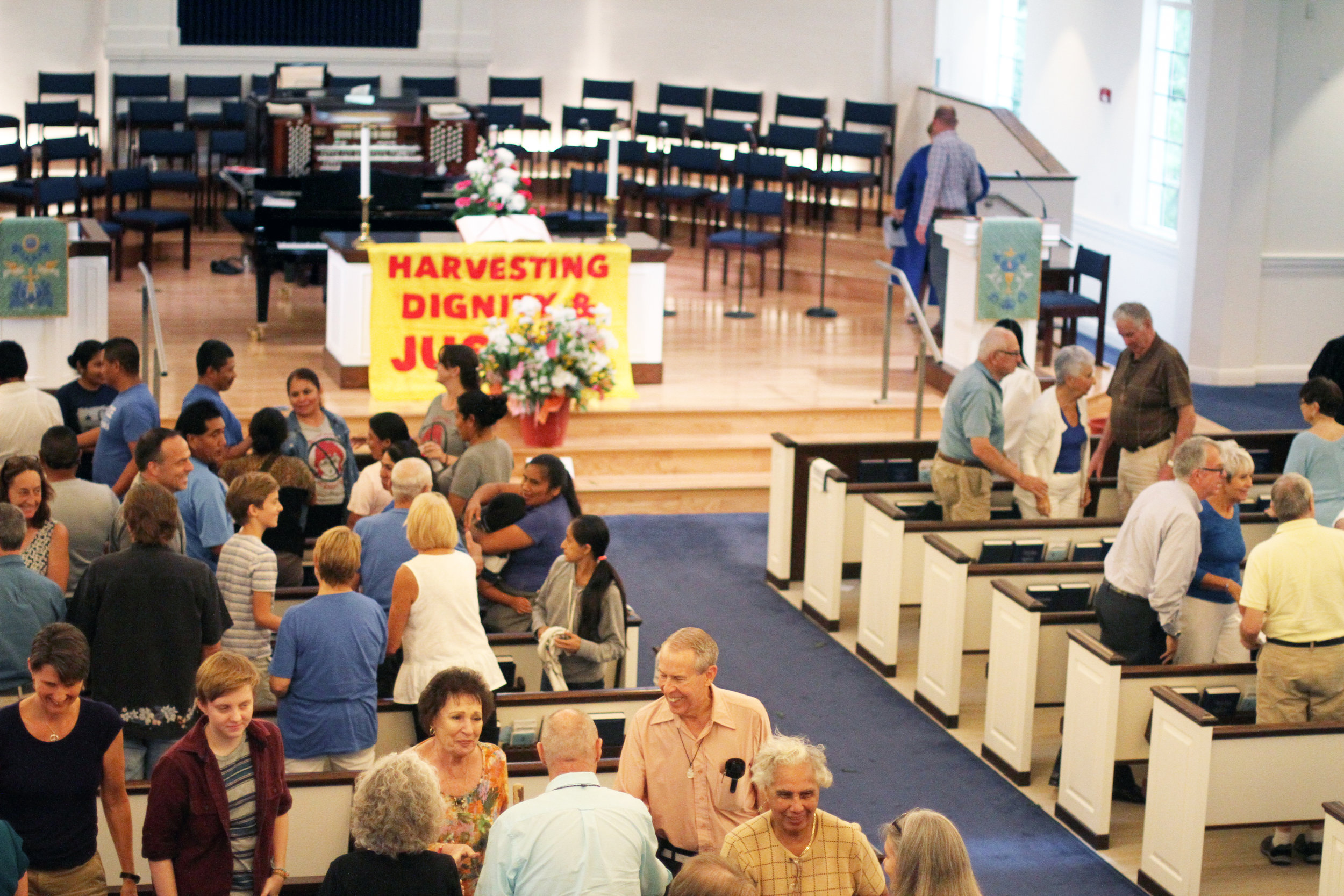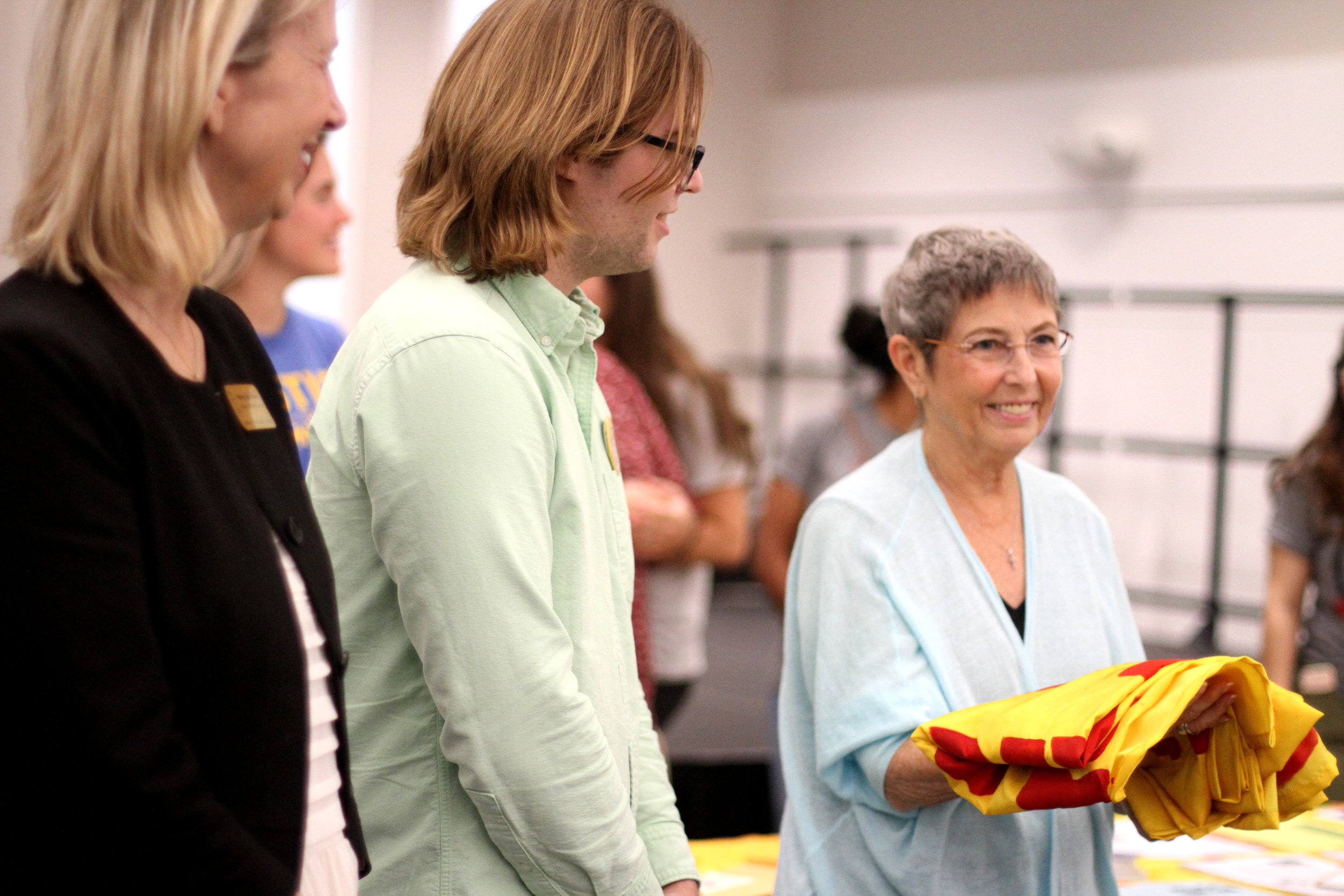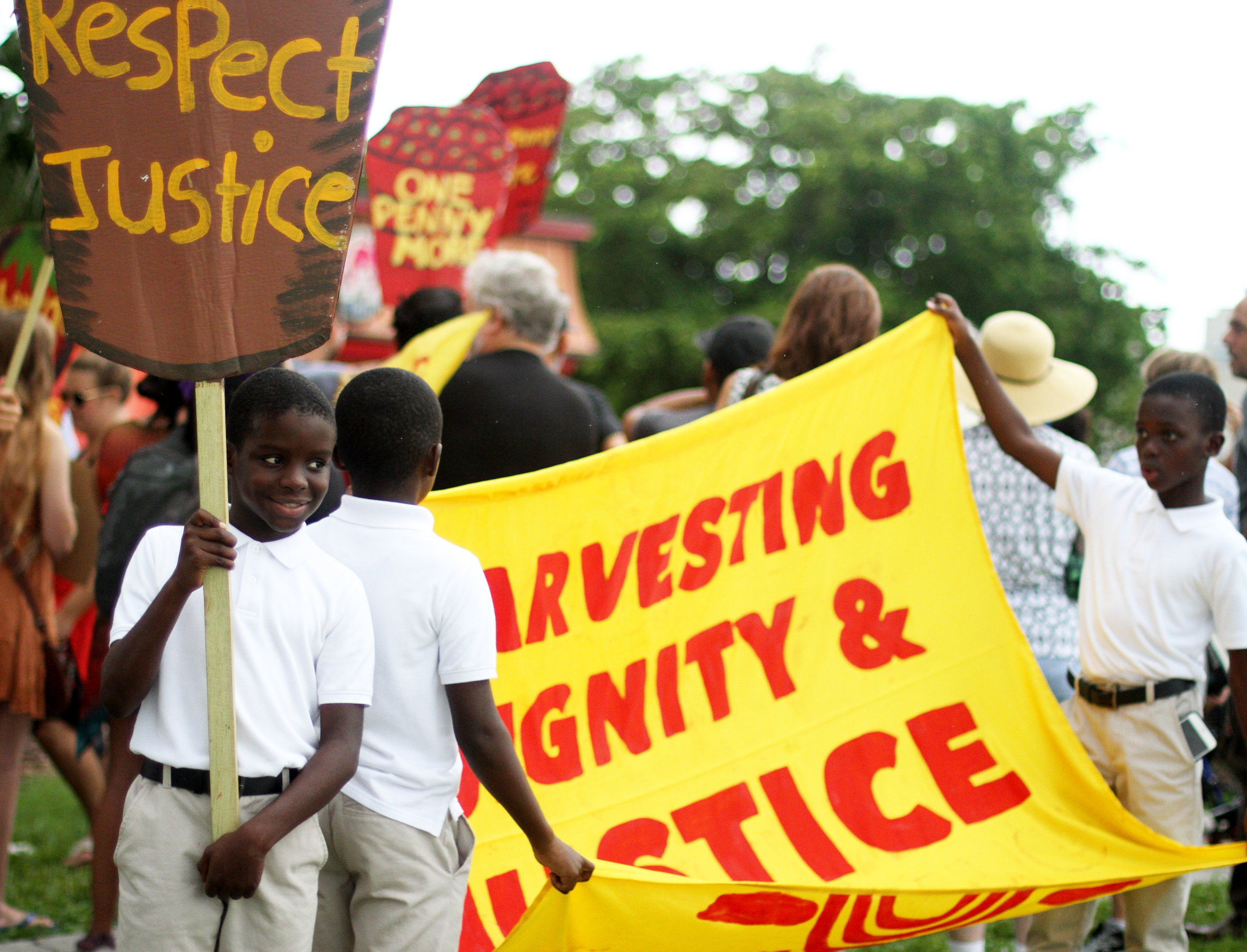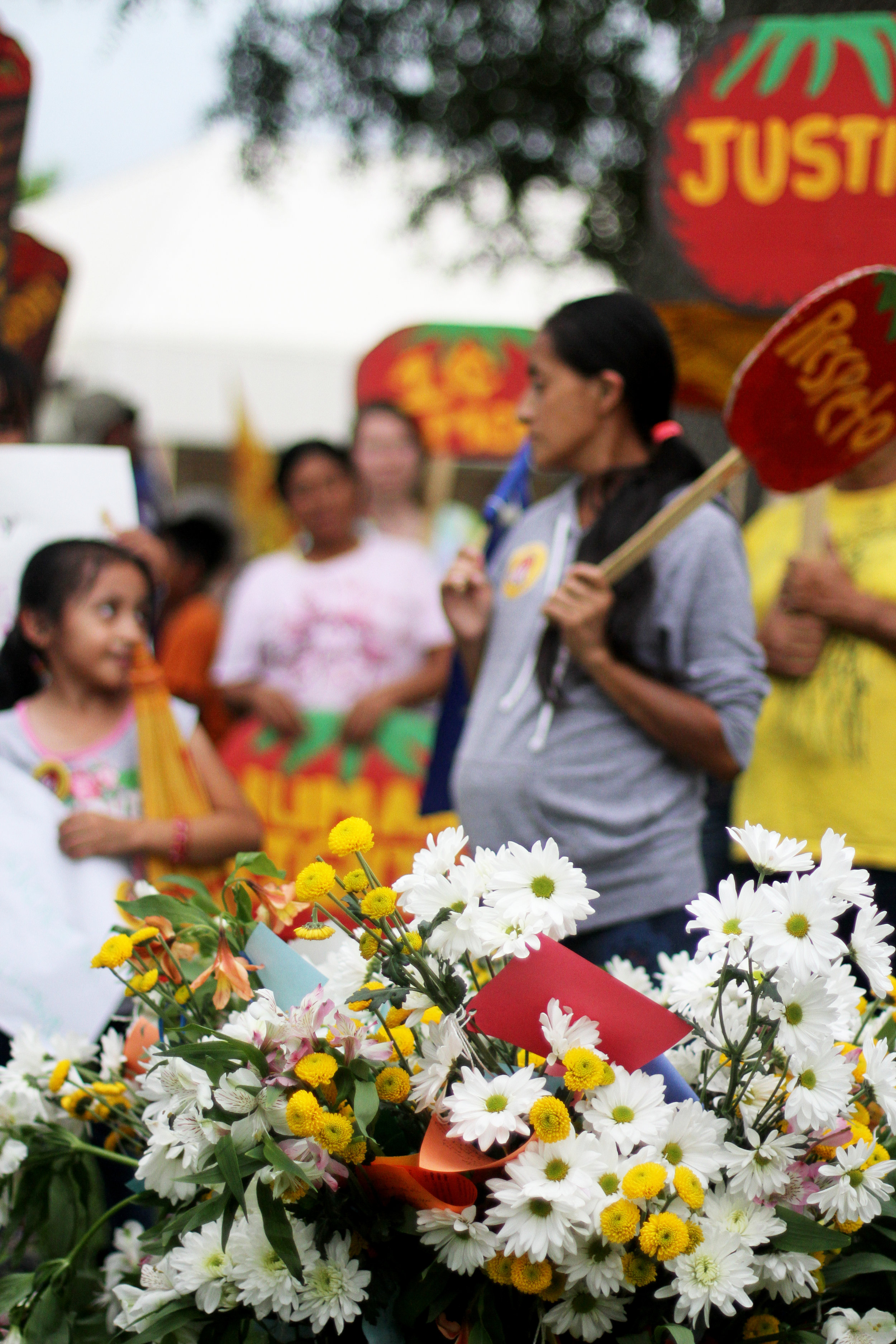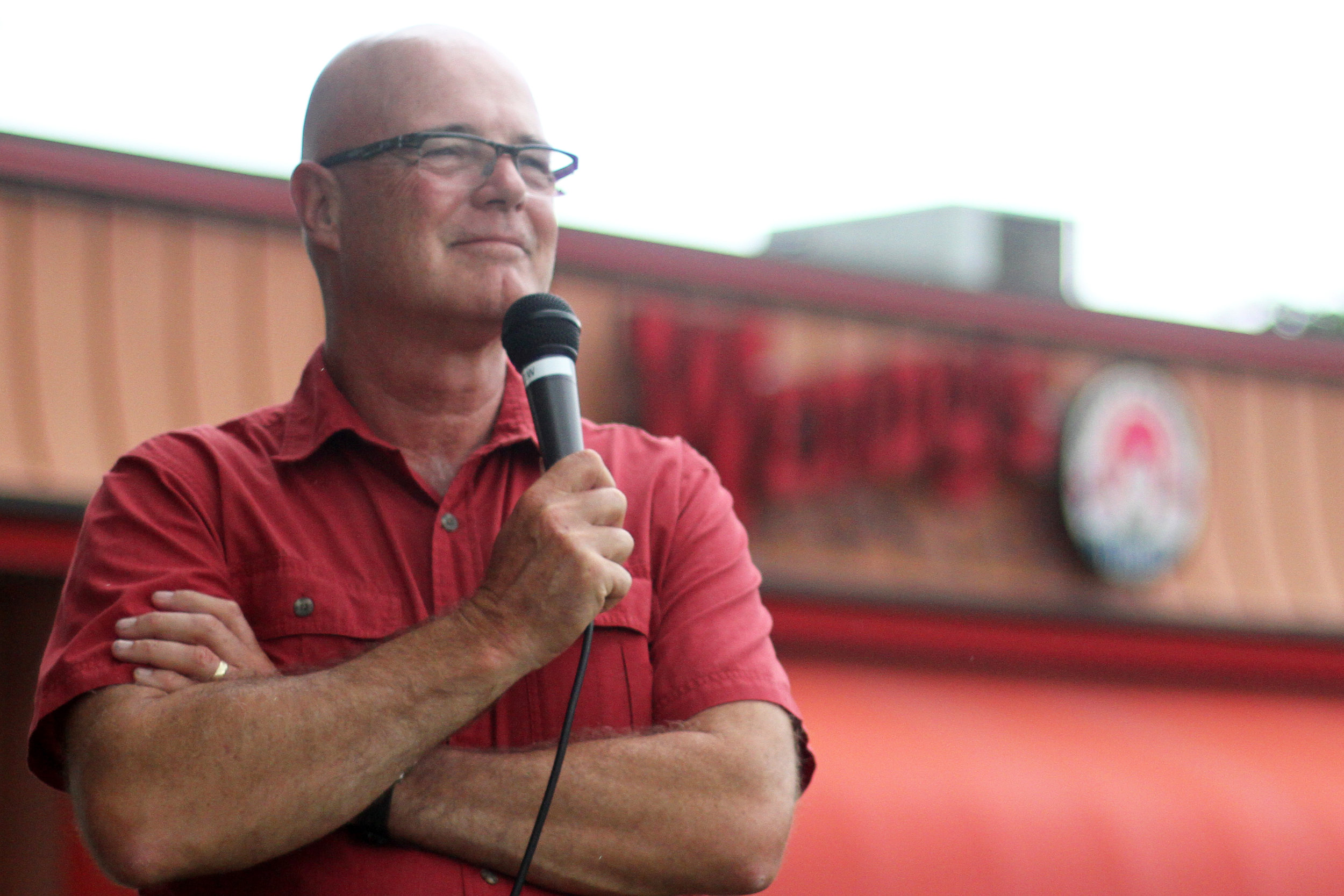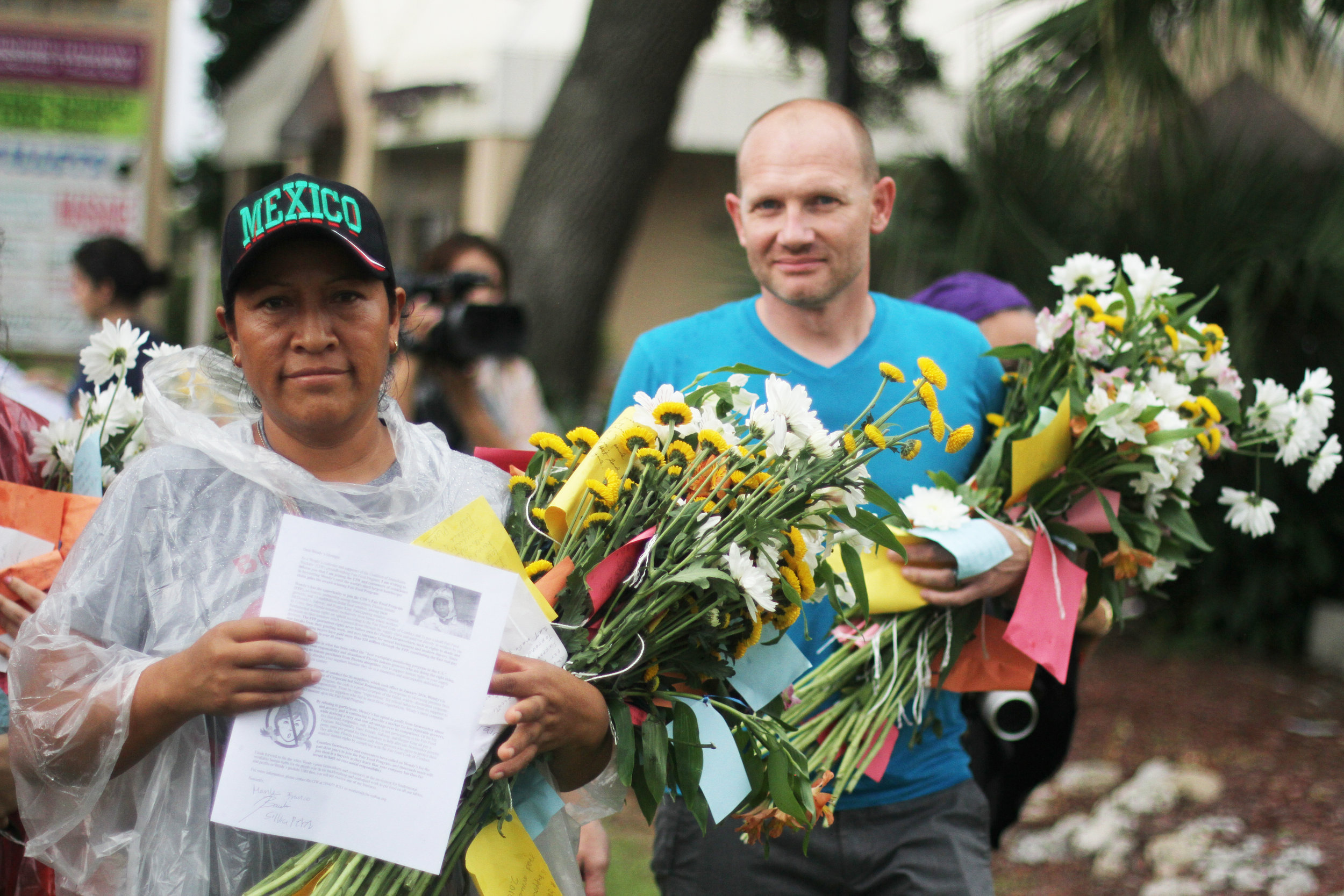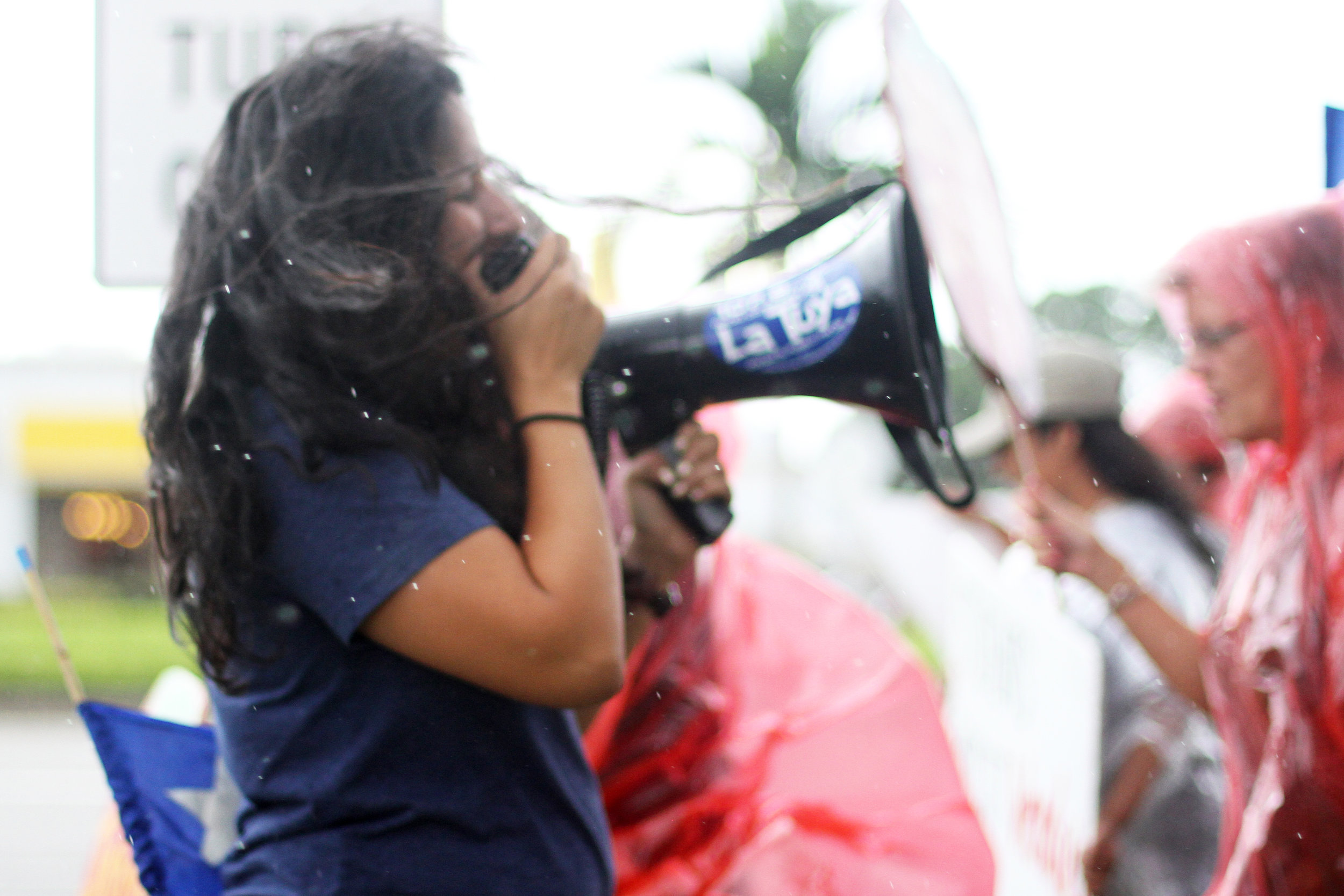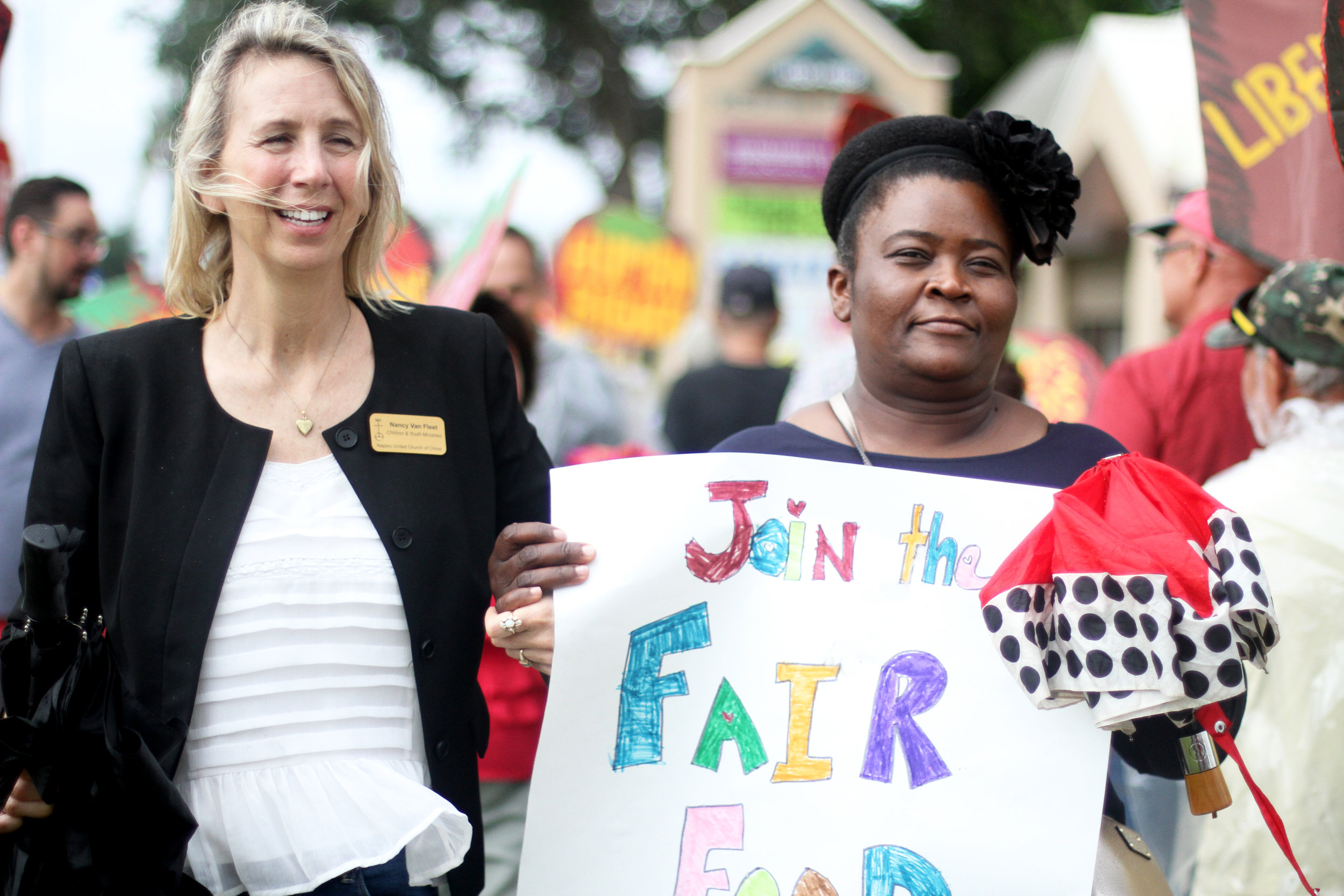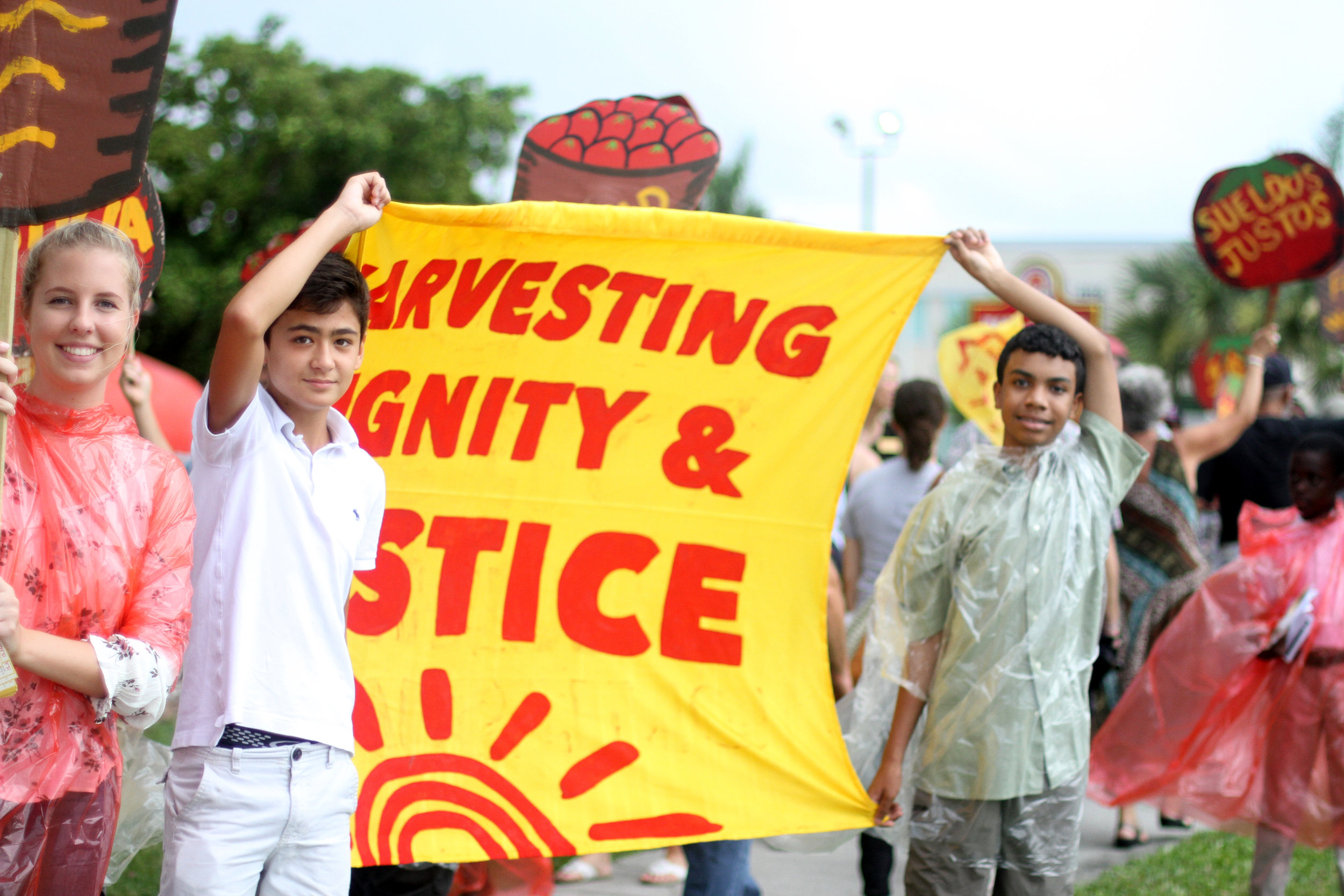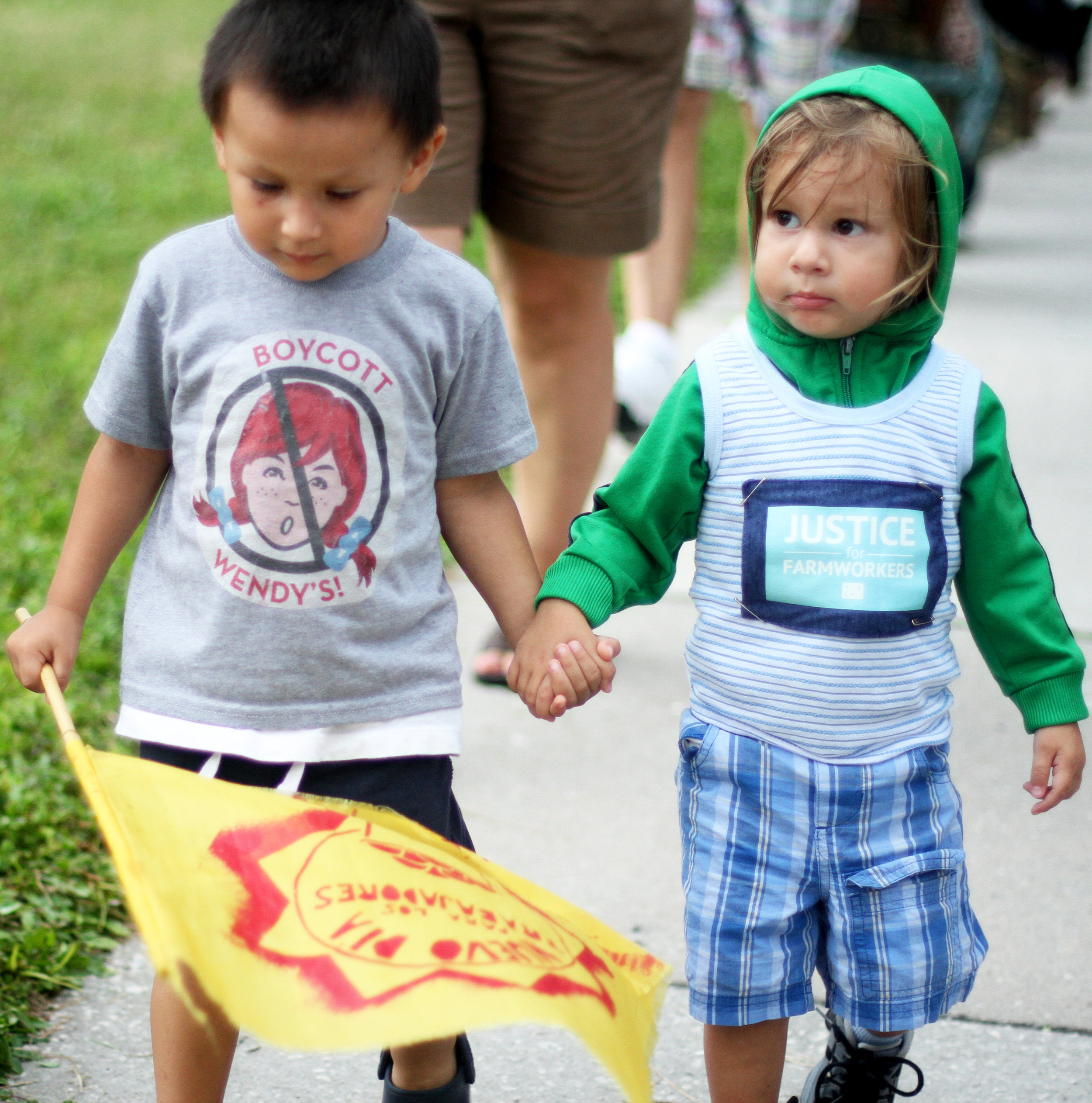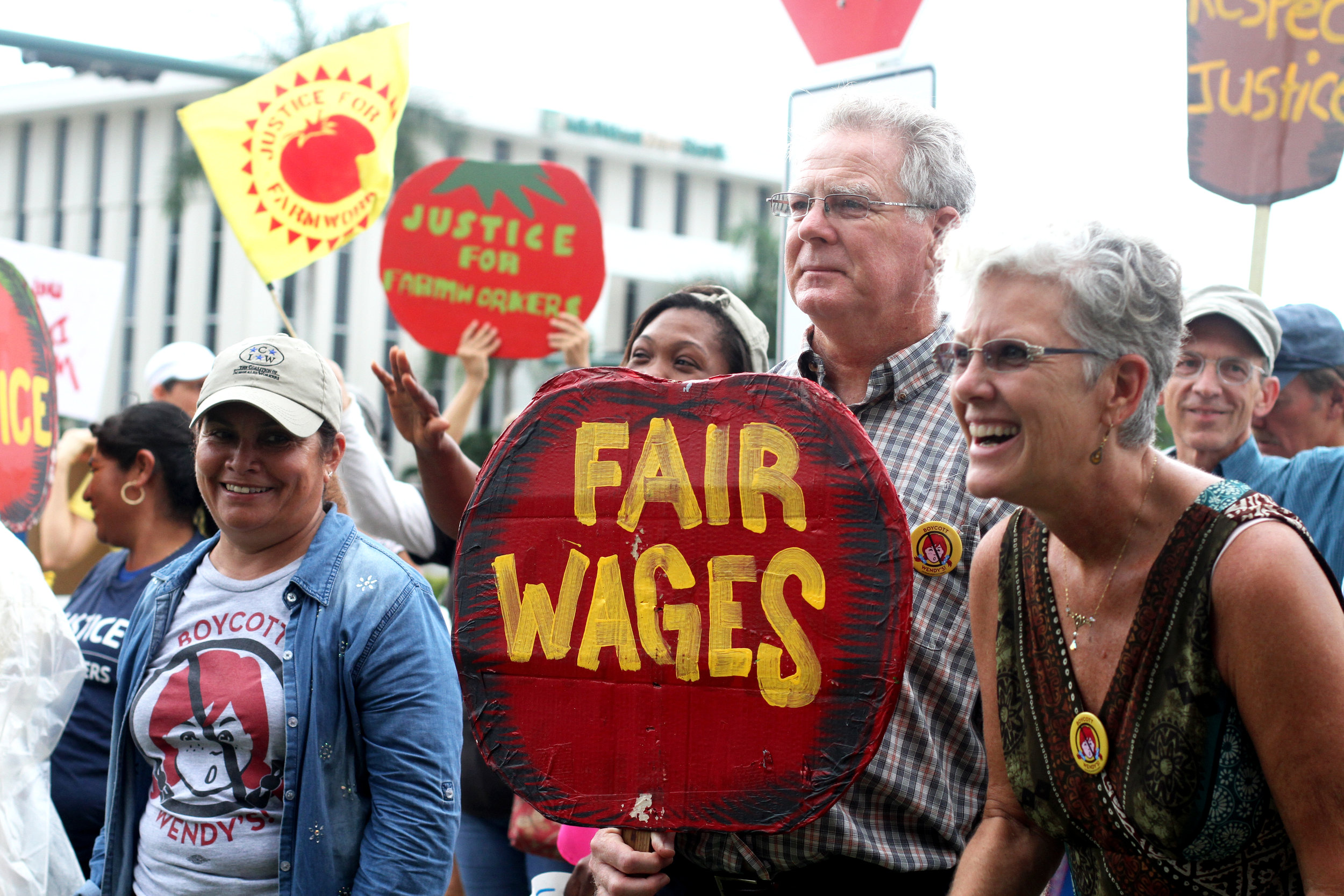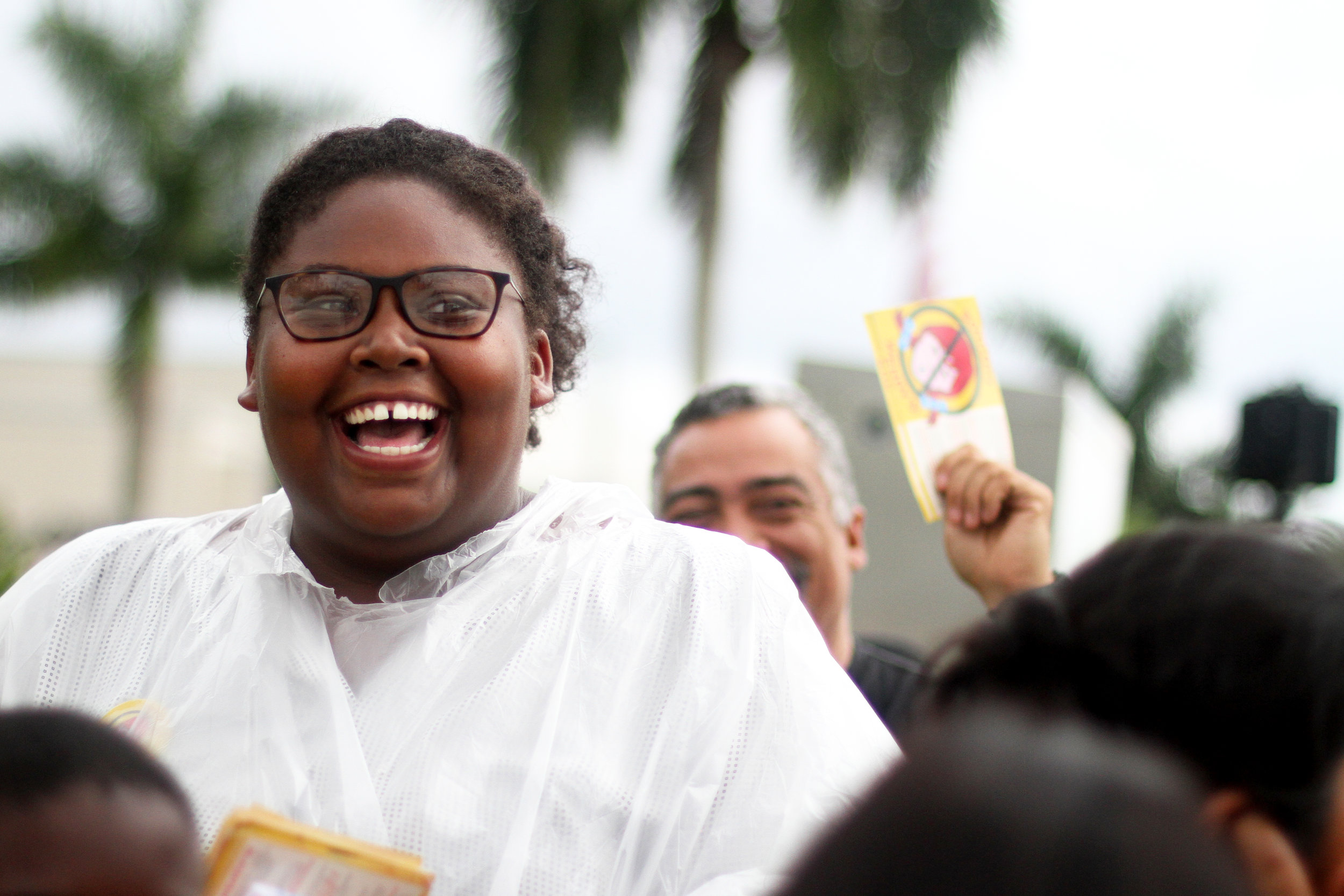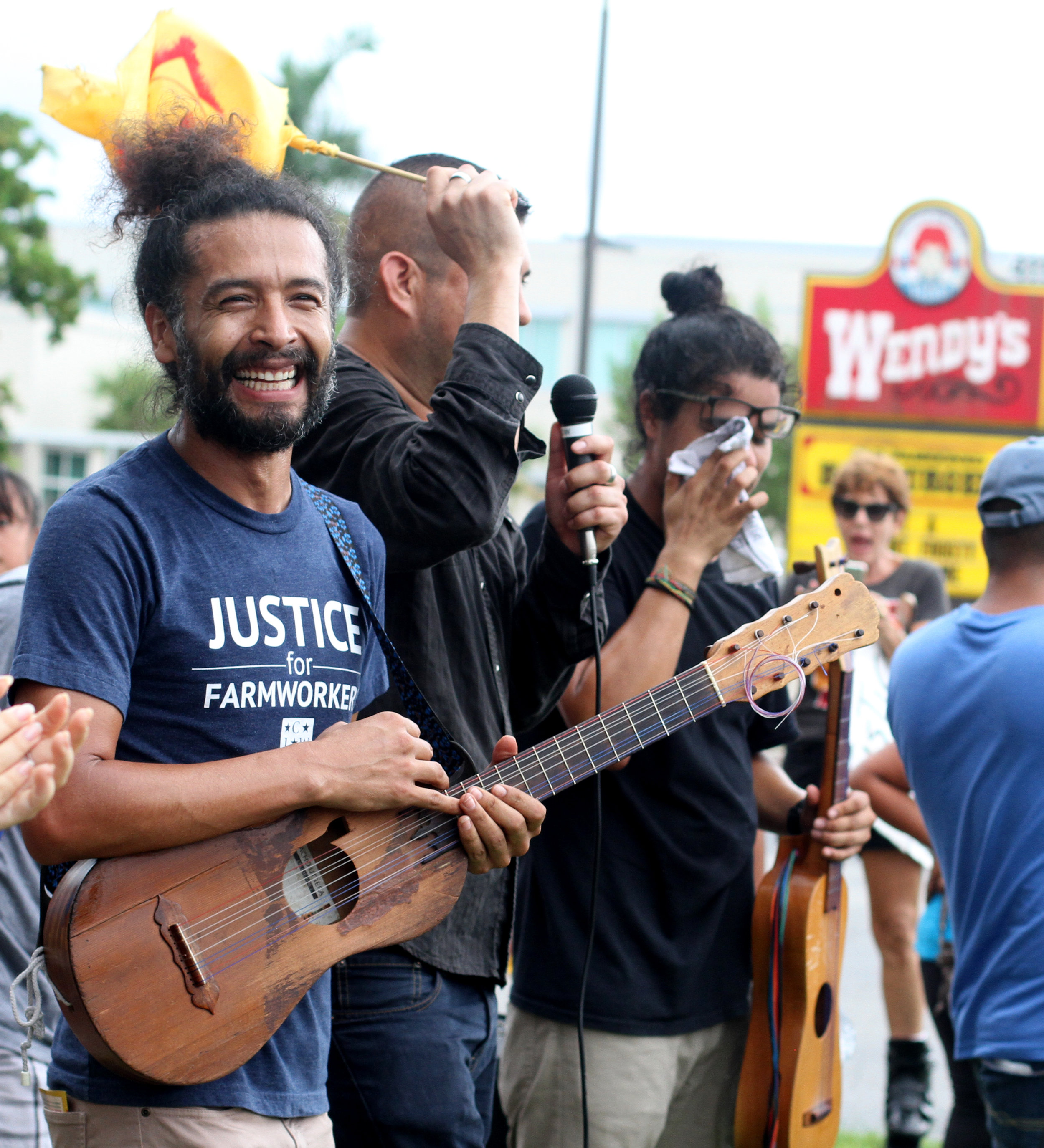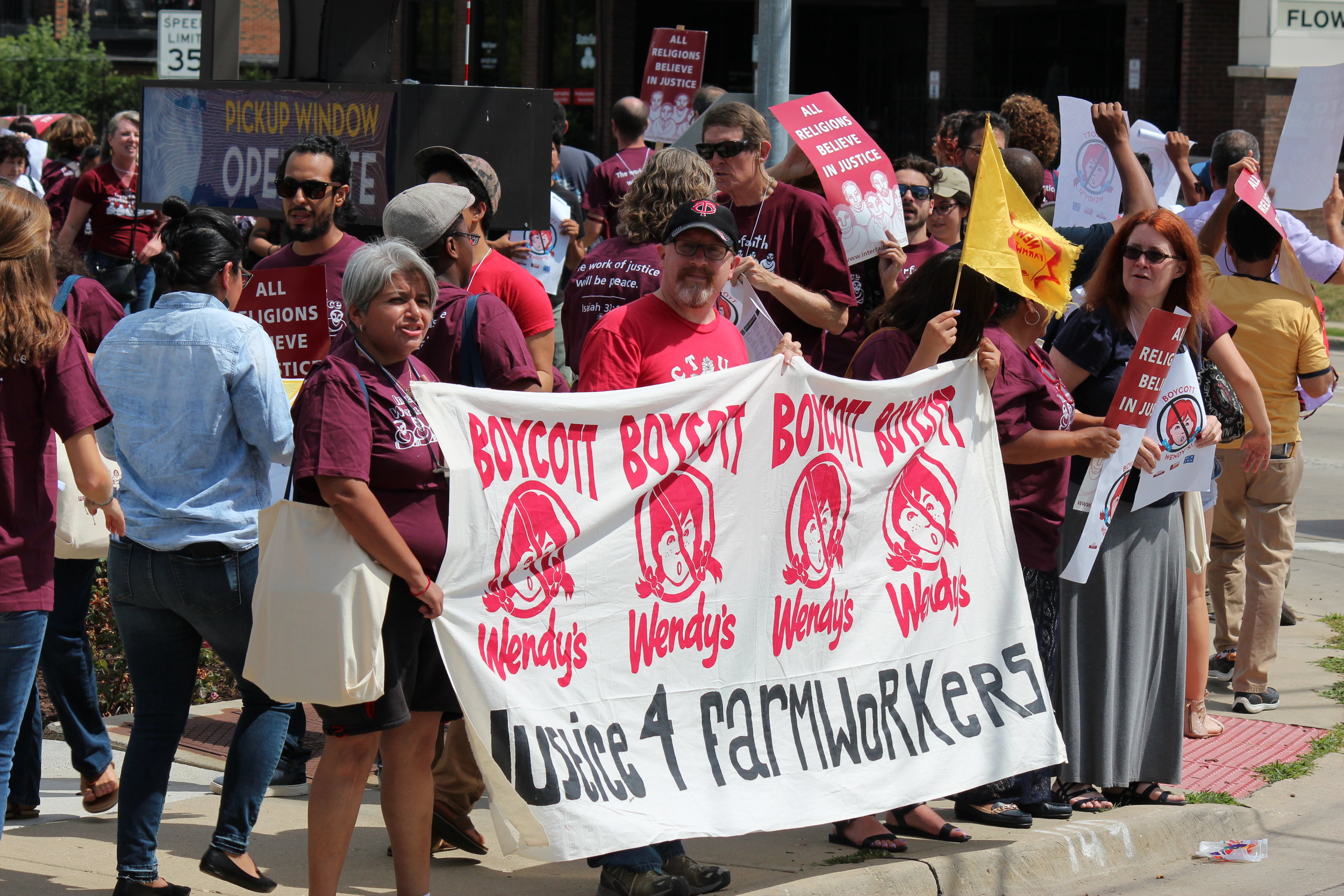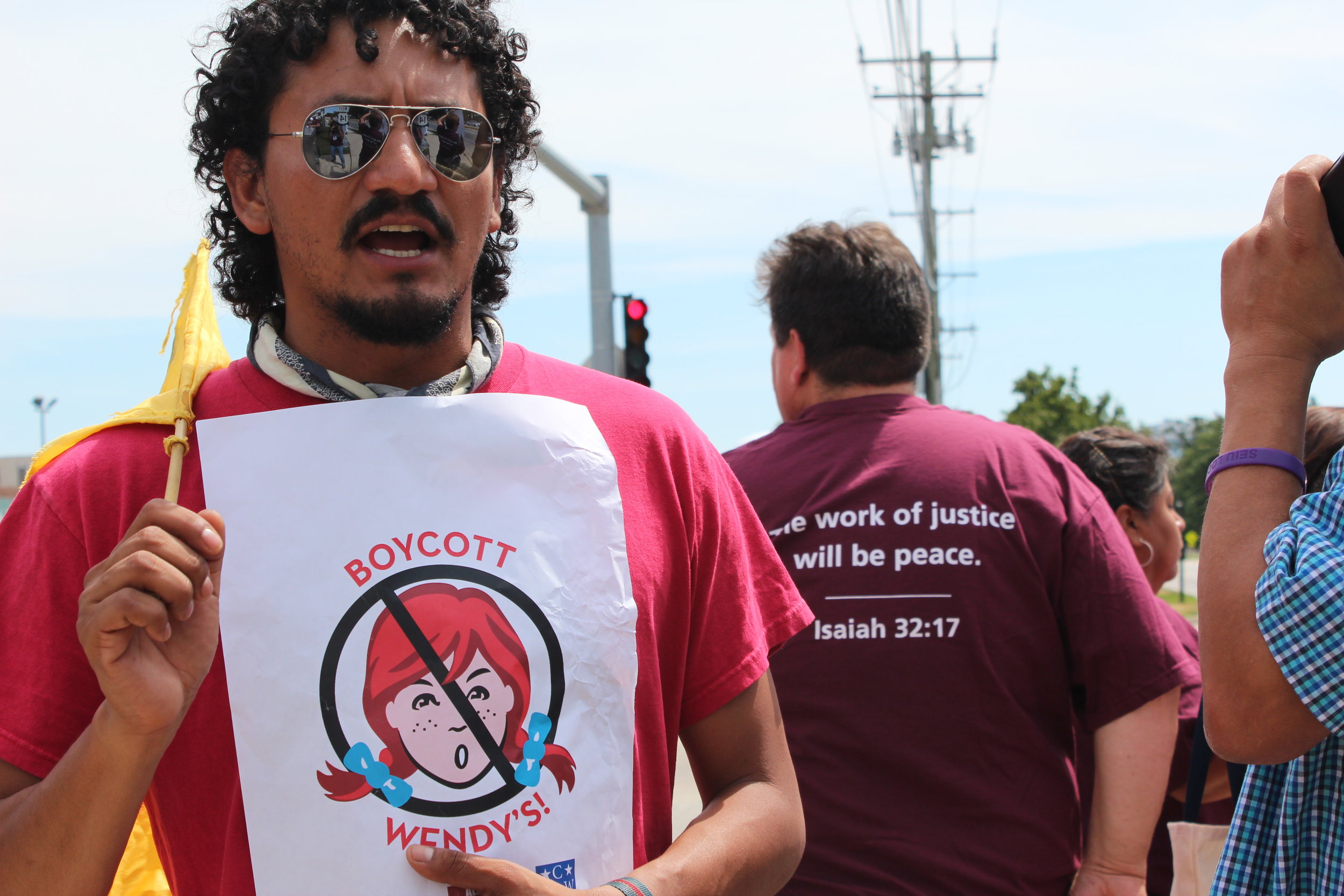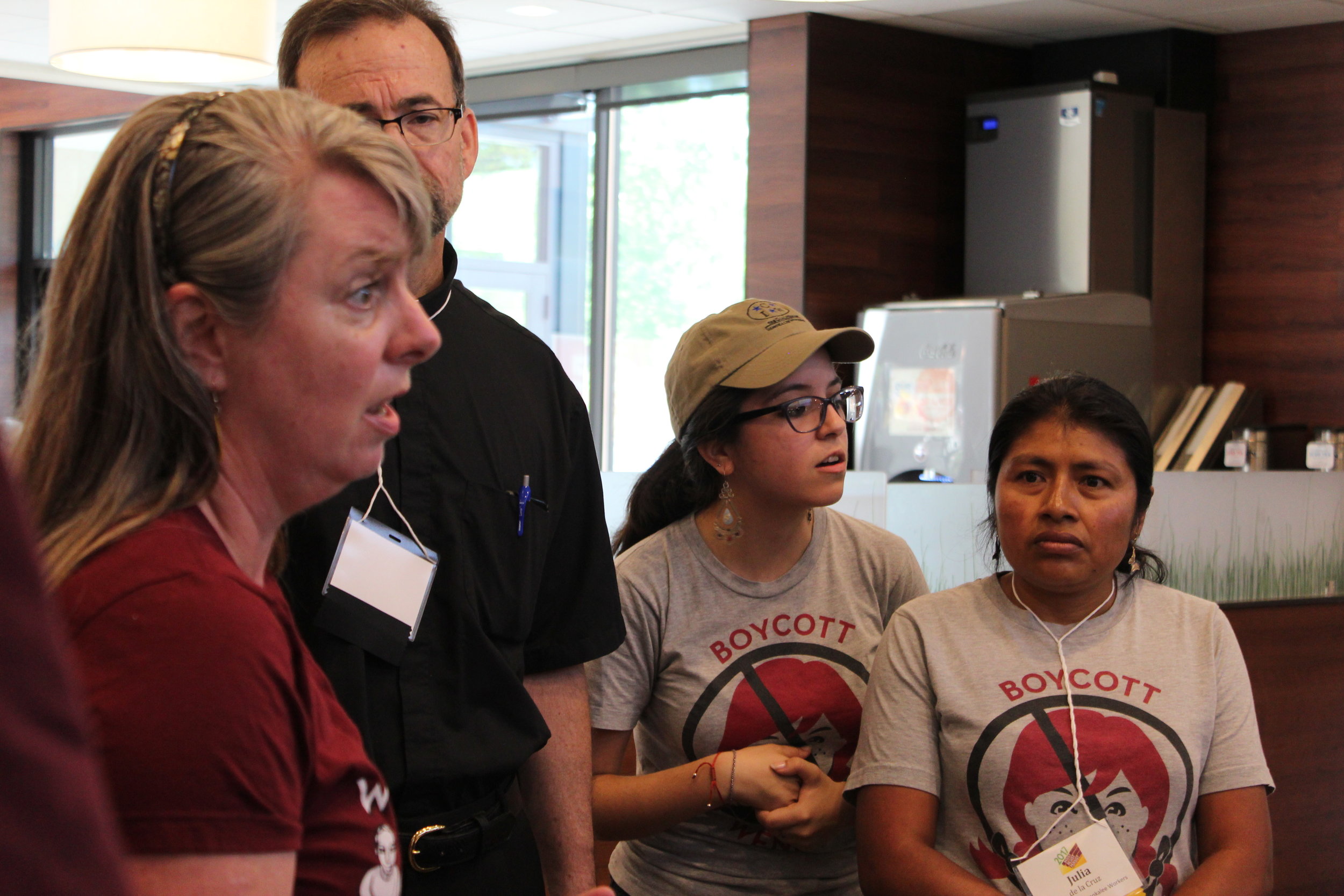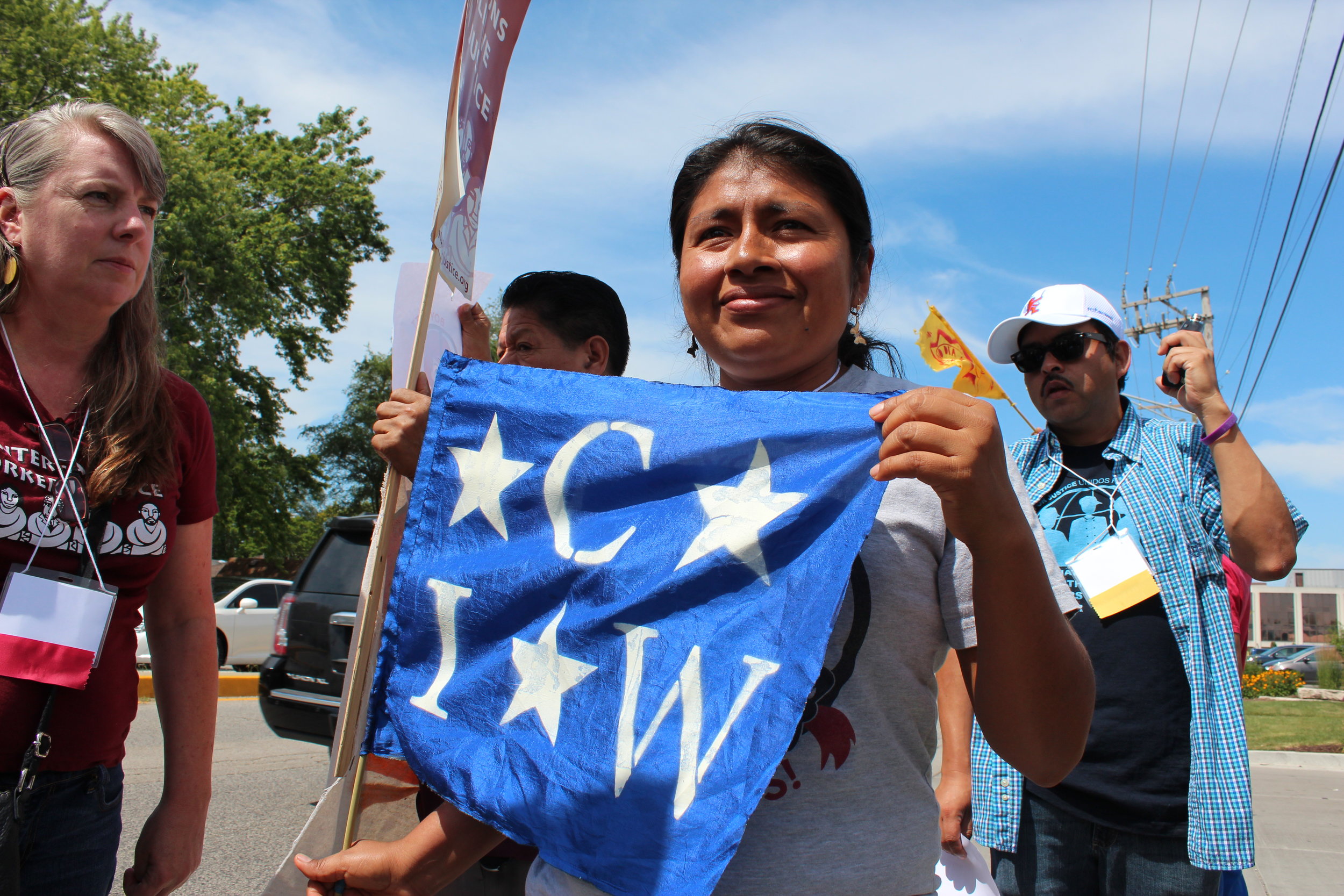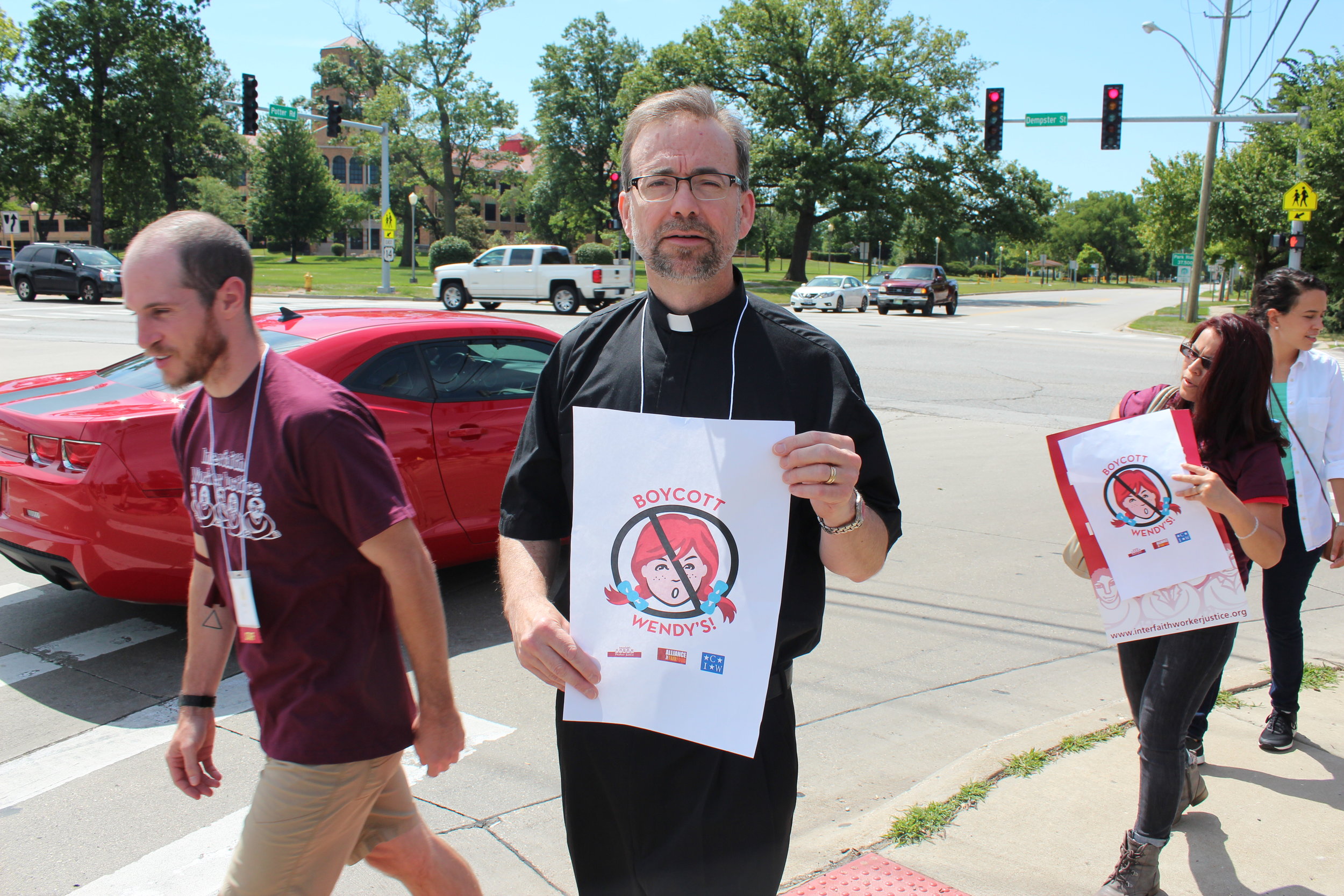9 July, 2017
To Mr. Todd Penegor:
As faith leaders representing various religious denominations and institutions, as well as representatives from worker centers and unions nationwide, we write to you today on behalf of the Interfaith Worker Justice network to express our wholehearted support for the scores of faith leaders across Florida embarking on a month-long rolling fast throughout the month of July in support of the Wendy’s Boycott called for by the Coalition of Immokalee Workers.
These leaders are fasting to condemn Wendy's failure to join the Fair Food Program and thereby join a proven solution to farmworker exploitation and abuse. They are fasting as a representation of the growing commitment of their communities in the ongoing national boycott of Wendy’s.
And today – as nearly 100 of us delivered this letter to a Chicago-area Wendy’s restaurant on the last day of IWJ’s annual convening – we, too, join the growing alliance of consumers of conscience refusing to patronize Wendy’s because of its shameful refusal to take responsibility for conditions faced by farmworkers in its supply chain.
Wendy’s stands alone among its competitors in its refusal to participate in the Coalition of Immokalee Workers’ Presidential Medal-winning Fair Food Program (FFP). Your company's rejection of the Program goes beyond the fast food chain’s refusal to join. Following the implementation of the FFP in Florida tomato fields, Wendy’s unconscionably shifted its purchases away from participating farms in Florida to Mexico, where the produce industry is notoriously rife with farmworker abuse and exploitation. Instead of adopting the FFP’s uniquely effective worker-driven, market-enforced model for social responsibility, Wendy’s has championed a hollow Code of Conduct that cuts workers out of the equation and relies on woefully inadequate monitoring or enforcement mechanisms.
Wendy’s actions unequivocally fail the basic moral code that demands every single one of us work tirelessly for justice for all people on this Earth – and that unquestioningly prioritizes human life over corporate profits. Communities of faith, workers, and consumers across the country will not allow such actions to go unanswered. Among the 27 Fair Food supporters who addressed Wendy’s executives and Board of Directors during Wendy’s annual shareholder meeting was Rick Ufford-Chase, former moderator of the PC(USA):
“Your refusal to join the Fair Food Program places you on the wrong side of history. So long as you choose to remain there, the faith community intends to work tirelessly with our ecumenical and interfaith partners to assure that this boycott will be effective. This movement has staying power within our churches.”
Mr. Penegor, we urge you to bring Wendy's into the ranks of buyers choosing the high road when it comes to human rights. We implore you to bring Wendy’s incredible purchasing power into the Fair Food Program and to thereby become a partner alongside farmworkers, growers, and your fast food buyer peers in furthering the human rights and fundamental dignity of our brothers and sisters toiling in the fields.
Respectfully,
Interfaith Worker Justice
Members of the Board of Directors of IWJ
The Rev. Doug Mork, Board President and Lead Pastor, Cross of Glory Lutheran Church in Brooklyn Center, MN
Bishop Howard Hubbard, Vice President of the Board and Bishop Emeritus, Diocese of Albany, NY
The Rev. Michael Livingston, Finance Committee Chairperson and Executive Minister, Riverside Church in New York, NY
Mr. Jules Bernstein, Fundraising Committee Chairperson and Attorney, Bernstein & Lipsett, P.C.
Mr. Naeem Baig, Communications Committee Chairperson and Vice President for Public Affairs, Islamic Circle of North America
The Rev. Troy Jackson, Ph. D., Organizing Committee Chairperson and Executive Director, AMOS Project
The Rev. Dr. Ken Brooker Langston, Public Policy Committee Chairperson and Executive Director, Disciples Center for Public Witness
Mr. Patrick Carolan, Executive Director, Franciscan Action Network Mr. Phil Cubeta, Sallie B. and William B. Wallace Chair in Philanthropy, American College
The Rev. Dr. Lillian Daniel, Senior Pastor, First Congregational Church of Dubuque, IA
The Rev. Sue Engh, Director, Congregation-based Community Organizing for the Evangelical Lutheran Church of America
Ms. Ligia Guallpa, Executive Director, Workers Justice Project
Imam Taha Hassane, Imam, Islamic Center of San Diego
Ms. Karen Hessel, retired Program Director, Justice for Women, National Council of Churches
Mr. Louis Kimmel, Co-Founder and Executive Director, New Labor
Rabbi Jonathan Klein, Executive Director, Clergy & Laity United for Economic Justice – Los Angeles
Ms. Gema Lowe, Community Organizer, Micah Center
Dr. Joseph McCartin, Professor of History, Georgetown University and Executive Director, Kalmanovitz Initiative for Labor and the Working Poor
Mr. David H. Moskowitz, Attorney, Morgan & Morgan
Mr. Hunter Ogletree, Community Organizer, Western North Carolina Workers’ Center
Mr. Fred Redmond, International Vice President of Human Affairs, United Steelworkers and Member, AFL-CIO Executive Council
Rabbi Elizabeth Richman, Program Director and Rabbi in Residence, Jews United for Justice
Mr. Juan Ruiz, Community Organizer, Voces de la Frontera
Mr. Corey Saylor, Legislative Director, Council on American-Islamic Relations
The Rev. Dr. Paul Sherry, former President, United Church of Christ
Ms. Jeanette Smith, Executive Director, South Florida Interfaith Worker Justice
Ms. Amy Smoucha, Managing Director, Jobs with Justice
Ms. Marilyn Sneiderman, Director, Rutgers University Center for Innovation in Worker Organization
Dr. Jerry Taylor, Associate Professor of Bible, Abilene Christian University
Mr. Mustafa White, Treasurer, Helping Hand for Relief and Development
Mr. David Wildman, Executive Secretary for Human Rights & Racial Justice, General Board of Global Ministries, United Methodist Church
Ms. Robin Williams, International Vice President and Director, Civil Rights and Community Action Department at United Food and Commercial Workers International Union
Mr. Will Layng, Executive Director, Portland Jobs with Justice
Members of IWJ Affiliated Groups
Ana I. Rodriguez, Workers' Center of West Michigan (Grand Rapids, MI)
Allison Colberg, Micah Center (Grand Rapids, MI)
Erin Hennessey, Southern Maine Workers’ Center (Portland, ME)
Cynthia Martinez, Northwest Arkansas Workers Justice Center (Springdale, AR)
Nikeeta Slade, Workers' Center of Central New York(Syracuse, NY)
Bob Jane, Faith Alliance for a Moral Economy (Oakland, CA)
Rafael Vieyra, Immigrant Solidarity DuPage (DuPage, IL)
Gabriel Hernández Chico, Immigrant Solidarity DuPage (DuPage, IL)
Cristobal Cavazos, Immigrant Solidarity DuPage (DuPage, IL)
Martha Ojeda, Interfaith Worker Justice (Houston, TX)
Anna Rubin, Interfaith Worker Justice (Chicago, IL)
Jeremy Orr, Interfaith Worker Justice (Chicago, IL)
Jorge F. Lopez, Cincinnati Interfaith Workers Center (Cincinnati, OH)
Manuel Perez, Cincinnati Interfaith Workers Center (Cincinnati, Ohio)
Musah Abubzkar, Cincinnati Interfaith Worker Center (Cincinnati, OH)
Magda Orlander, Cincinnati Interfaith Worker Center (Cincinnati, OH)
Luis Torres, Rochester Workers’ Center (Rochester, NY)
Maria Clara Duarte, Domestic Workers and Day Labor Center of Chicago (Chicago, IL)
Maria Esther Bolaños, Domestic Workers and Day Labor Center of Chicago (Chicago, IL)
Marcela Hurtado Marquez, Center for Worker Justice of Eastern Iowa (Iowa City, IA)
Maria C., Center for Worker Justice of Eastern Iowa (Iowa City, IA)
Lolita Lledo, Pilipino Workers Center (Los Angeles, CA)
Anne Smith, Workers Interfaith Network (Memphis, TN)
Carlos Ochoa, Workers Interfaith Network (Memphis, TN)
Savannah Caccamo, South Florida Interfaith Worker Justice (Miami, FL)
Marianela Acuña, Fe y Justicia Worker Center (Houston, TX)
Guadalupe Magdaleno, Sunflower Community Action (Wichita, KS)
Carlos H. Gutierrez, Tompkins County Workers’ Center (Ithaca, NY)
Maureen Malkzewski, Thrive! Living Wage Coalition (Durango, CO)
Nora Reyes, Brazos Interfaith Immigration Network (Bryan, TX)
Alicia Olvera, Brazos Interfaith Immigration Network (Bryan, TX)
Jose Eduardo Sanchez, Koreatown Immigrant Workers Alliance (Los Angeles, CA)
Rebecca Taylor, Interfaith Worker Justice San Diego (San Diego, CA)
Steve Rivera, Interfaith Worker Justice San Diego (San Diego, CA)
Alex Galimberti, Oxfam (Boston, MA)
Becky Schigiel, Interfaith Coalition for Worker Justice (Madison, WI)
Valeria Chamba, New Labor (Newark, NJ)
Cidel Tandazo, New Labor (Newark, NJ)
The Rev. Holly Beaumont, Interfaith Worker Justice New Mexico (Santa Fe, NM)
León Carlos Miranda, Workers’ Rights Center of Madison (Madison, WI)
Anahi Tapia, United Food and Commercial Workers - Making Change at Walmart (Chicago, IL)





